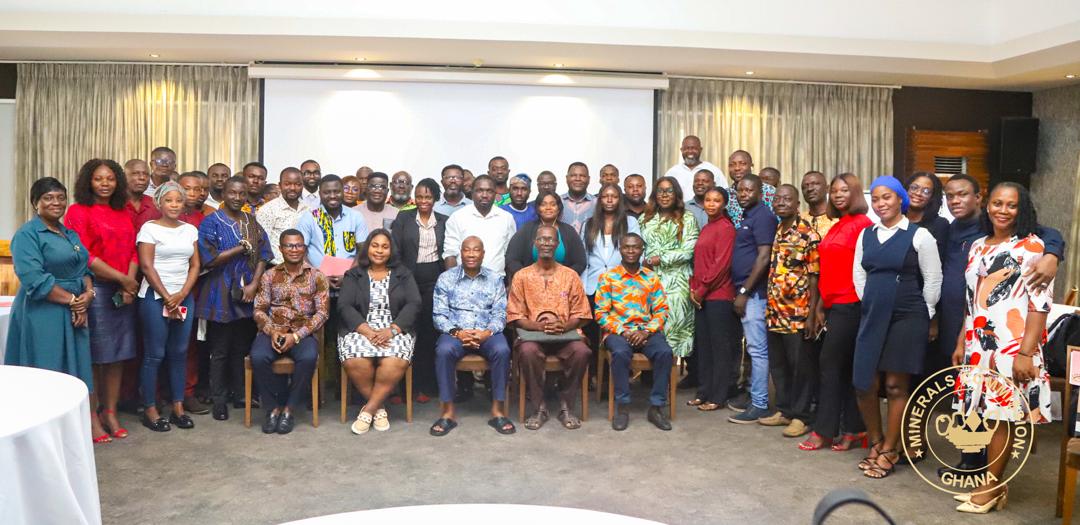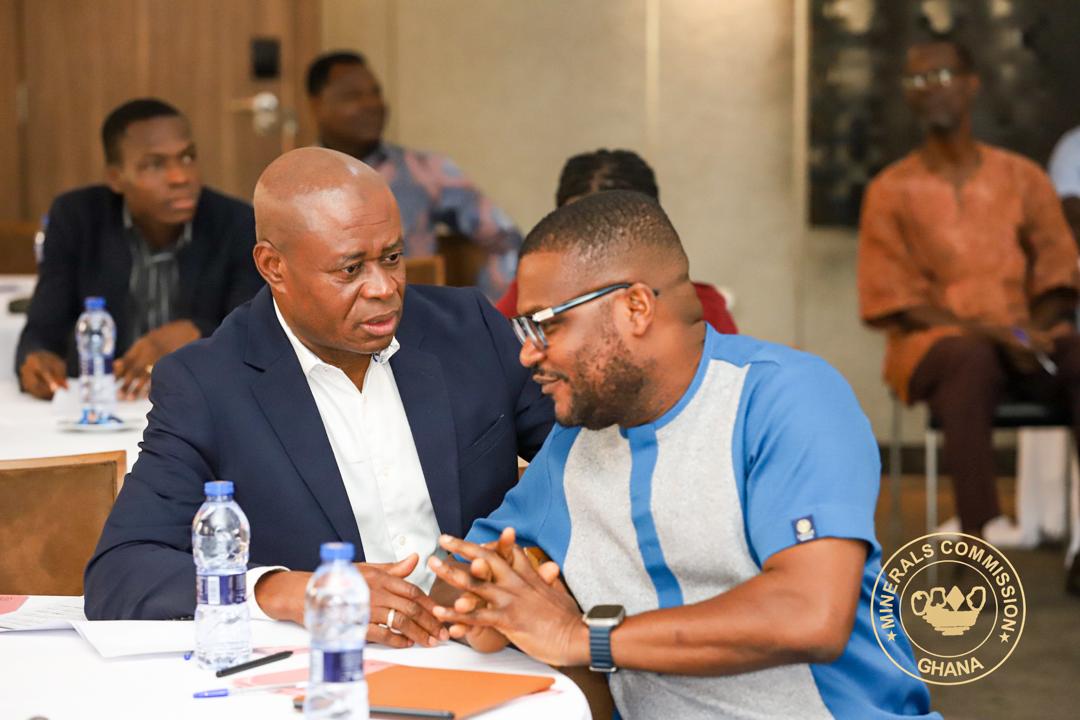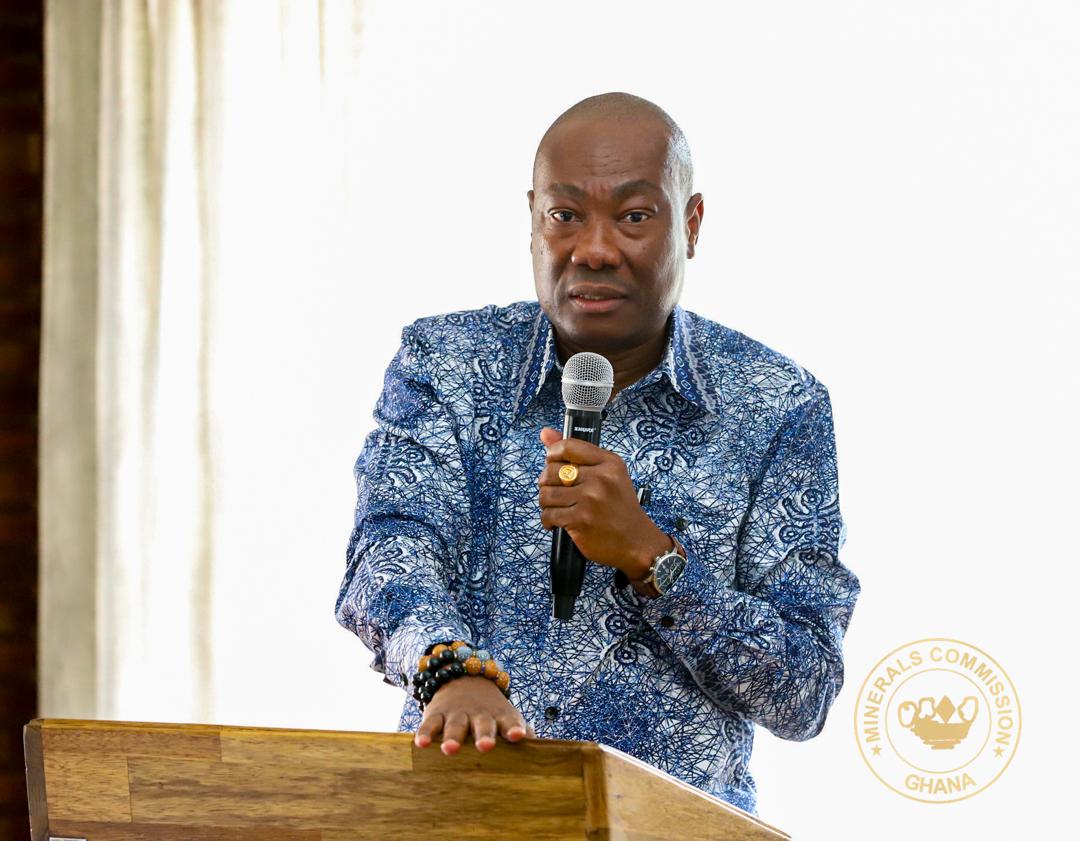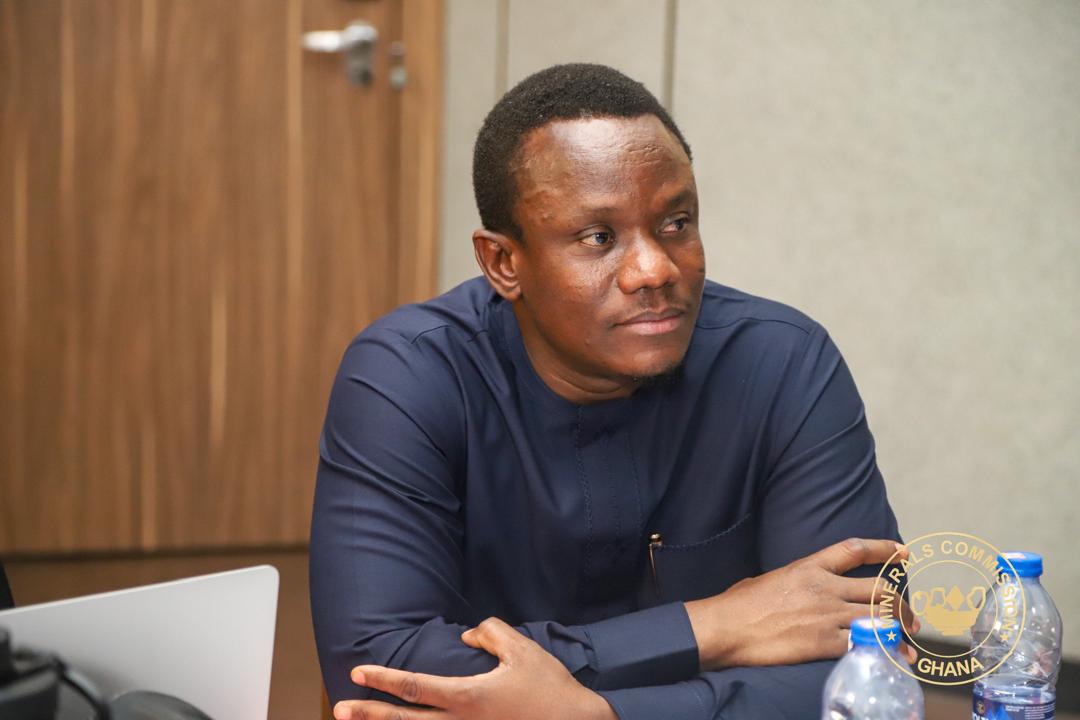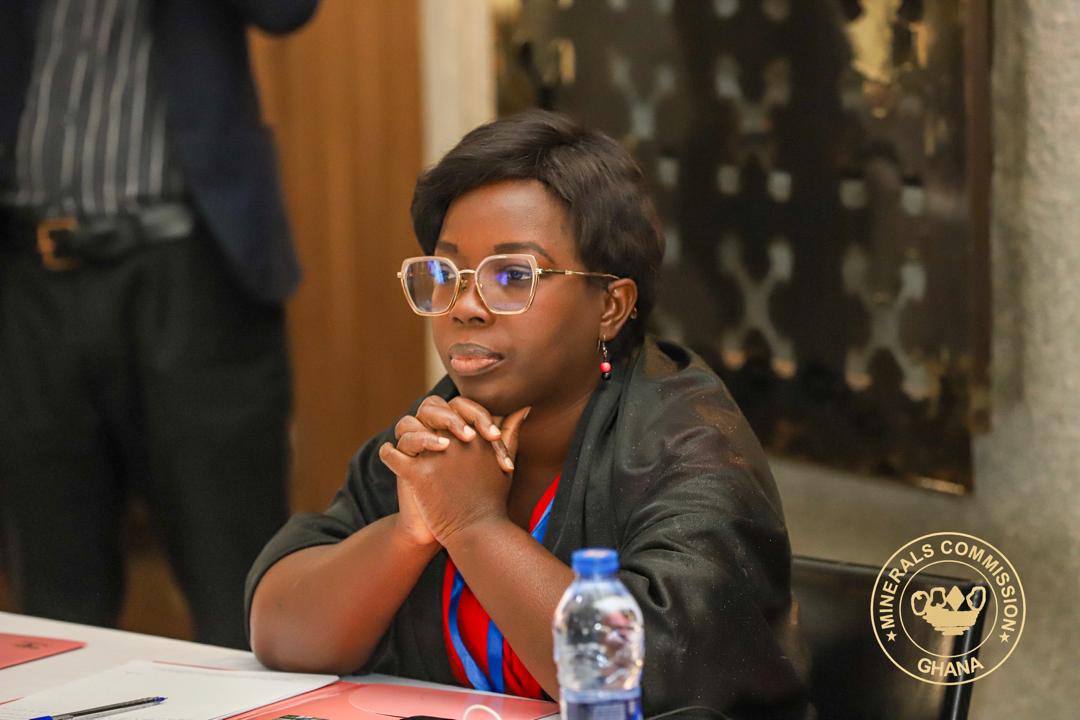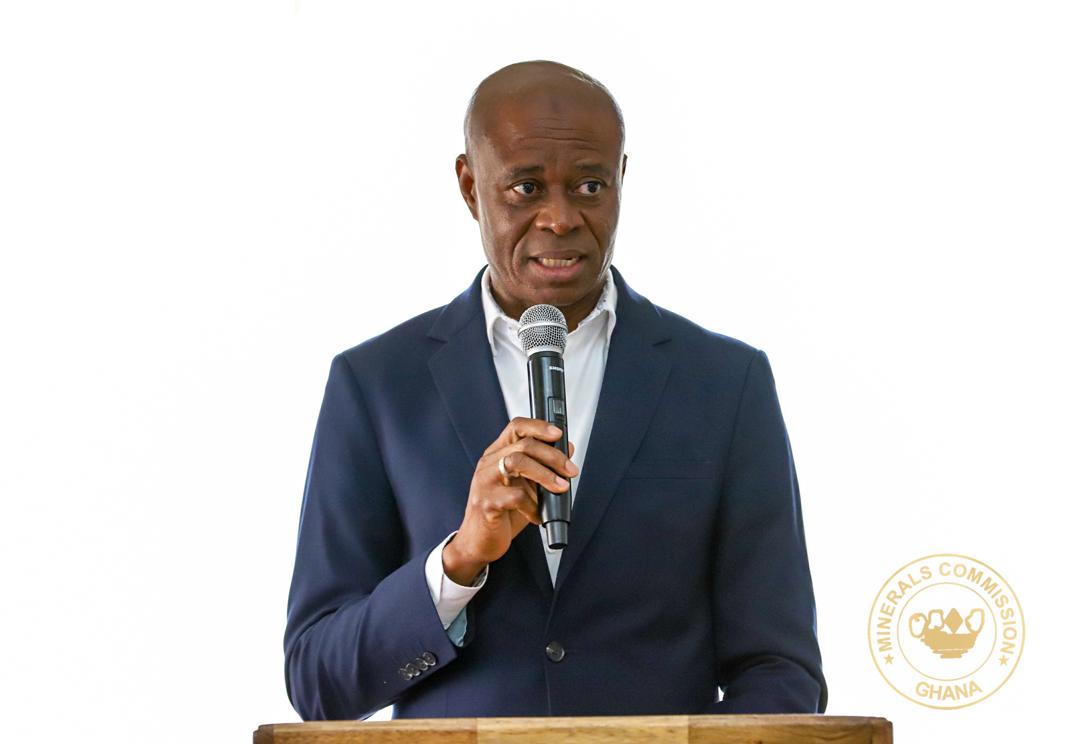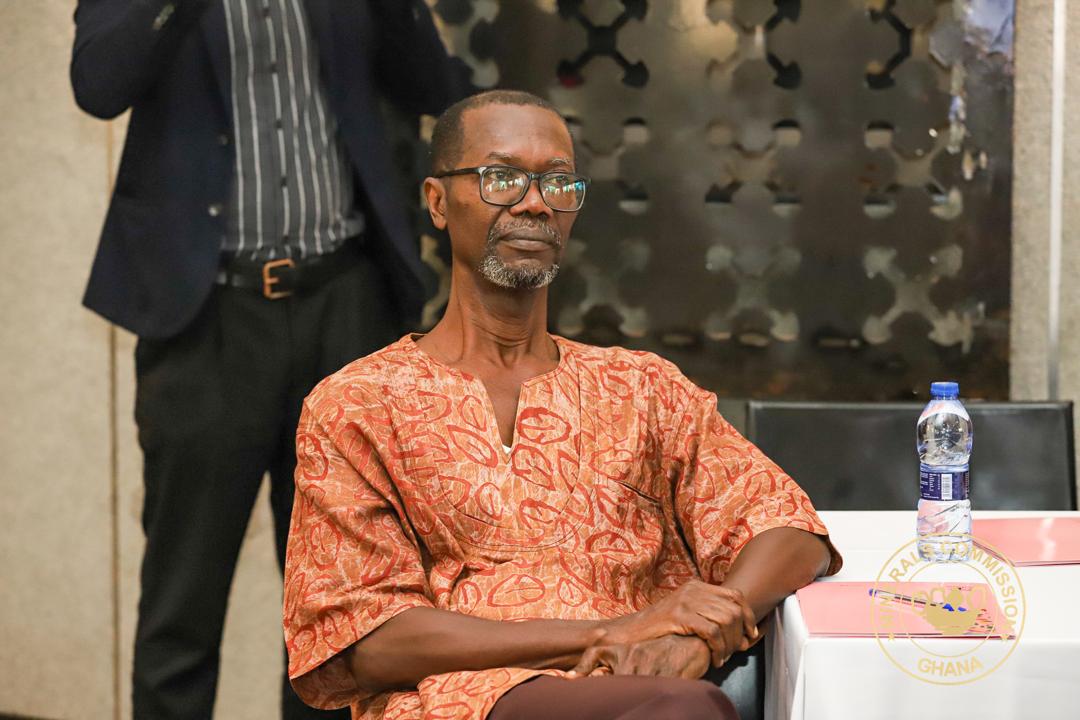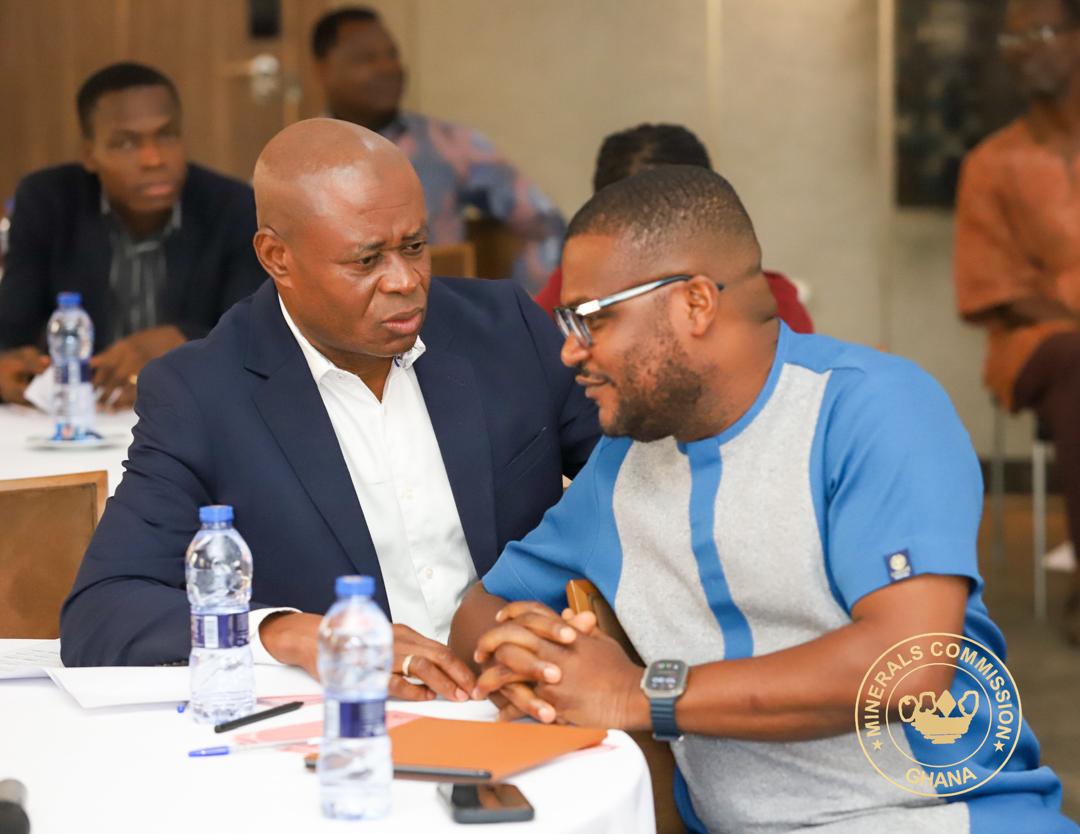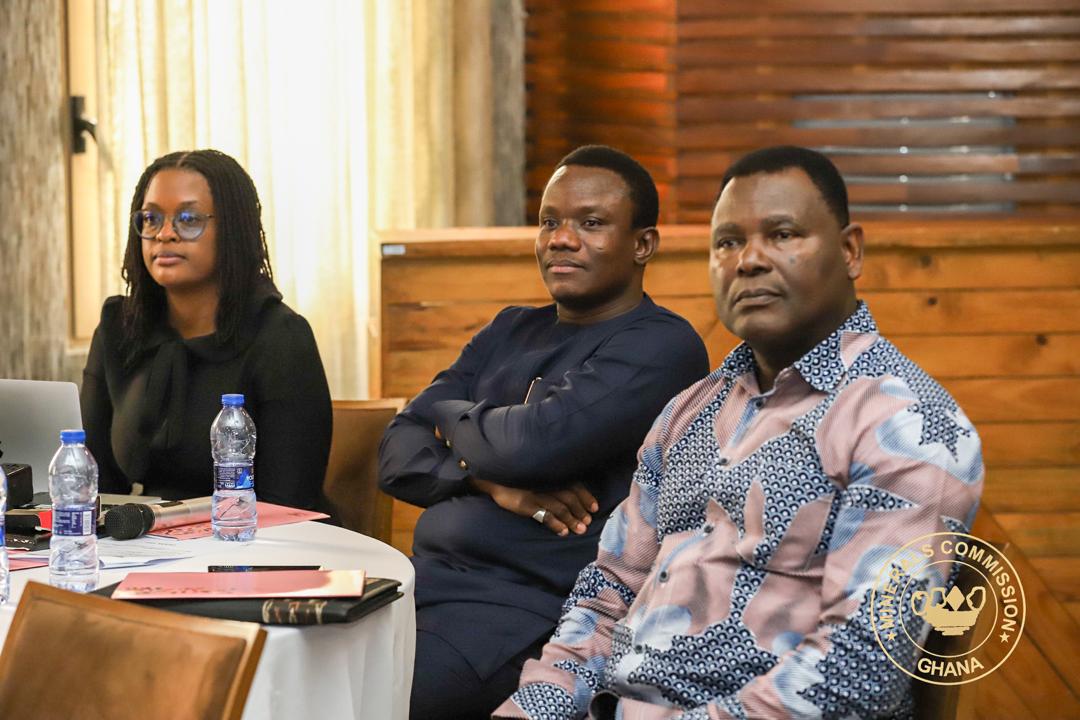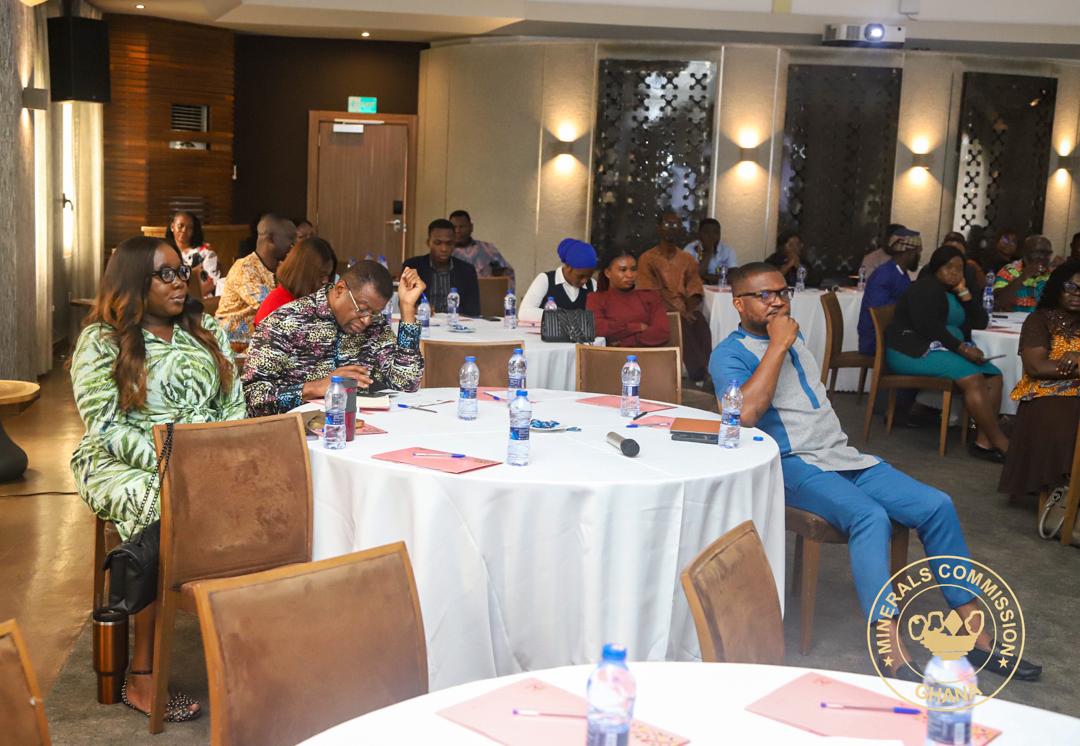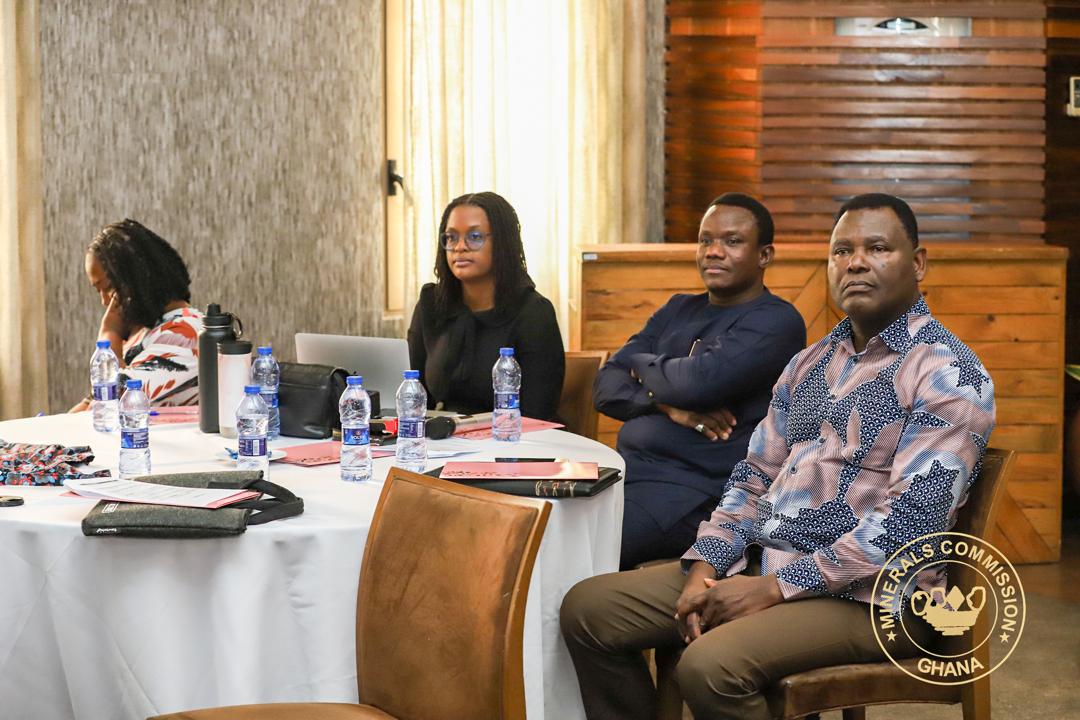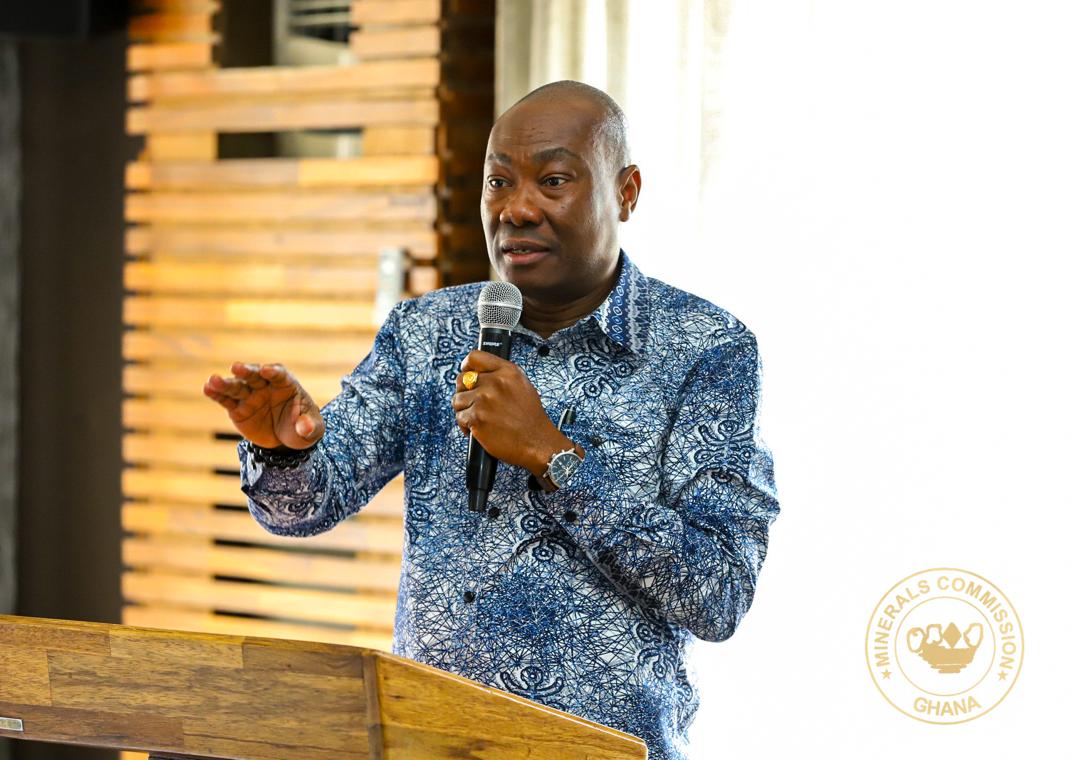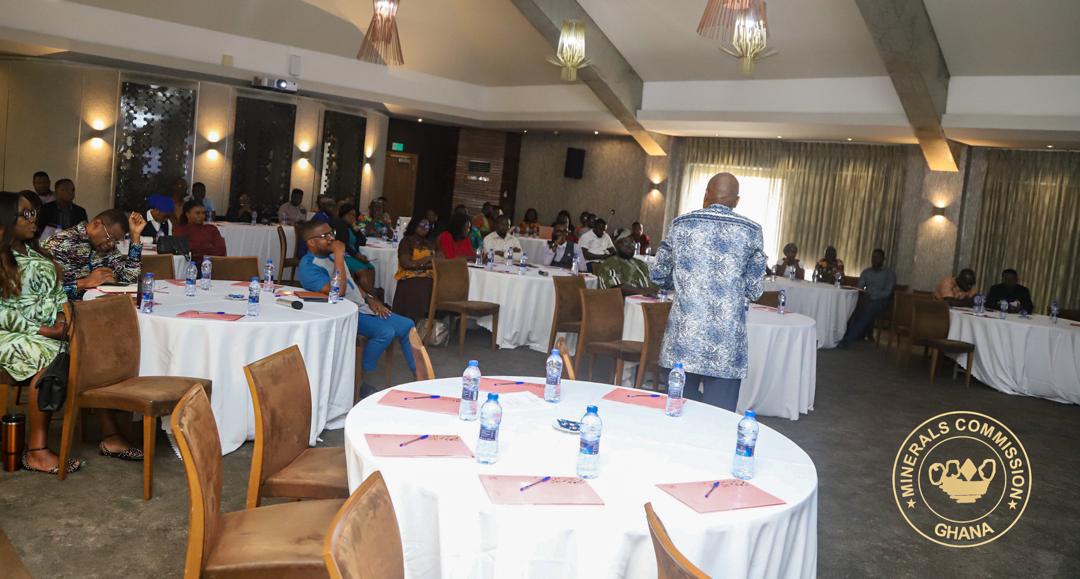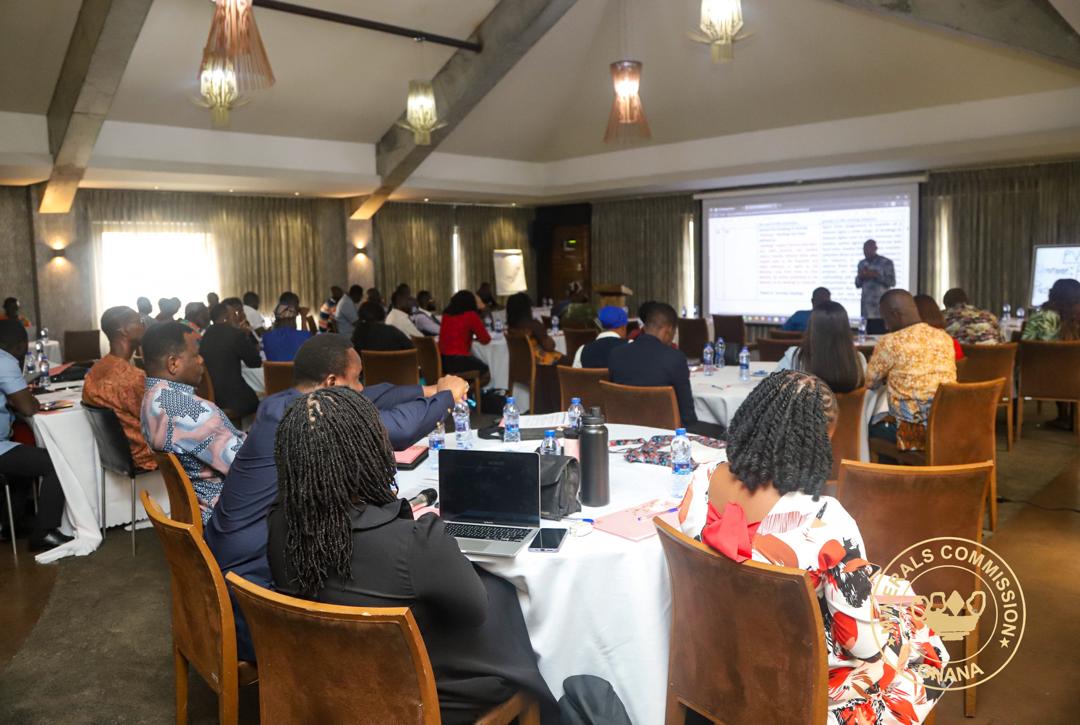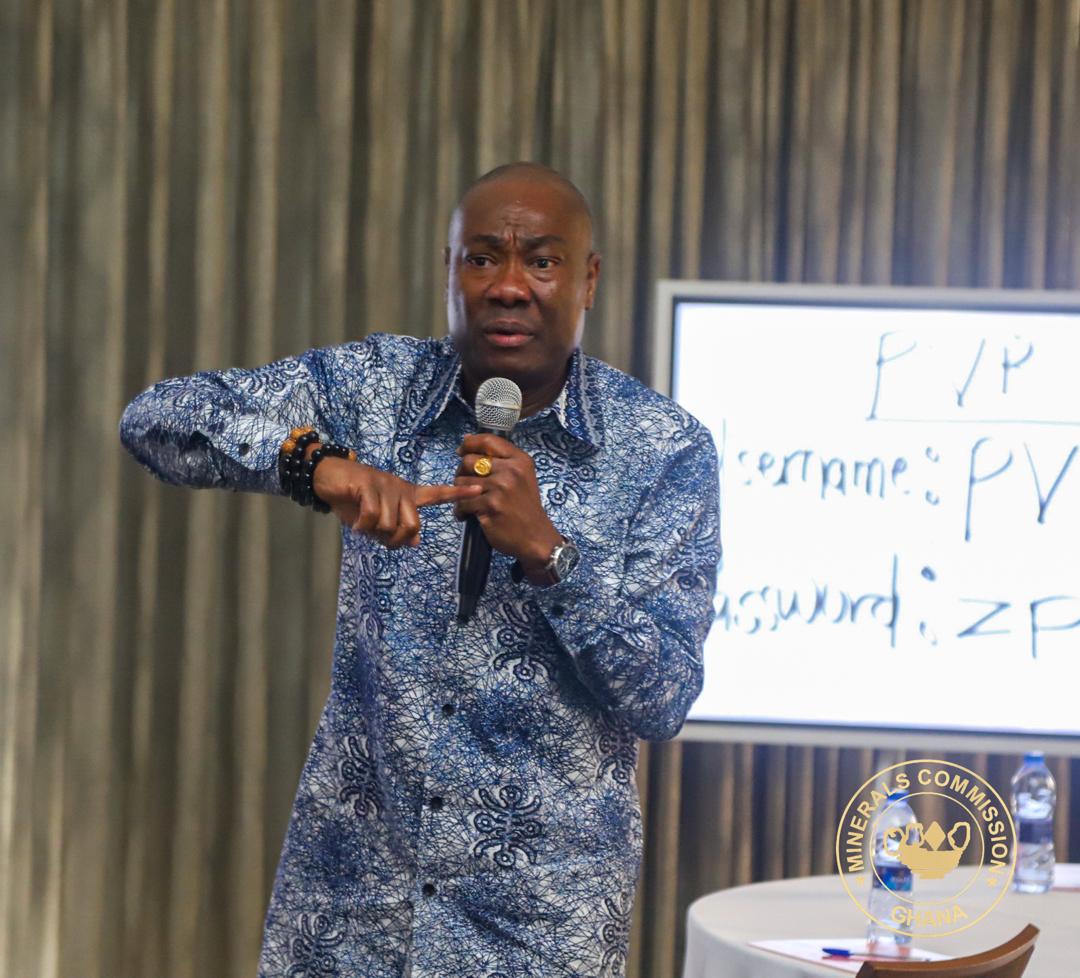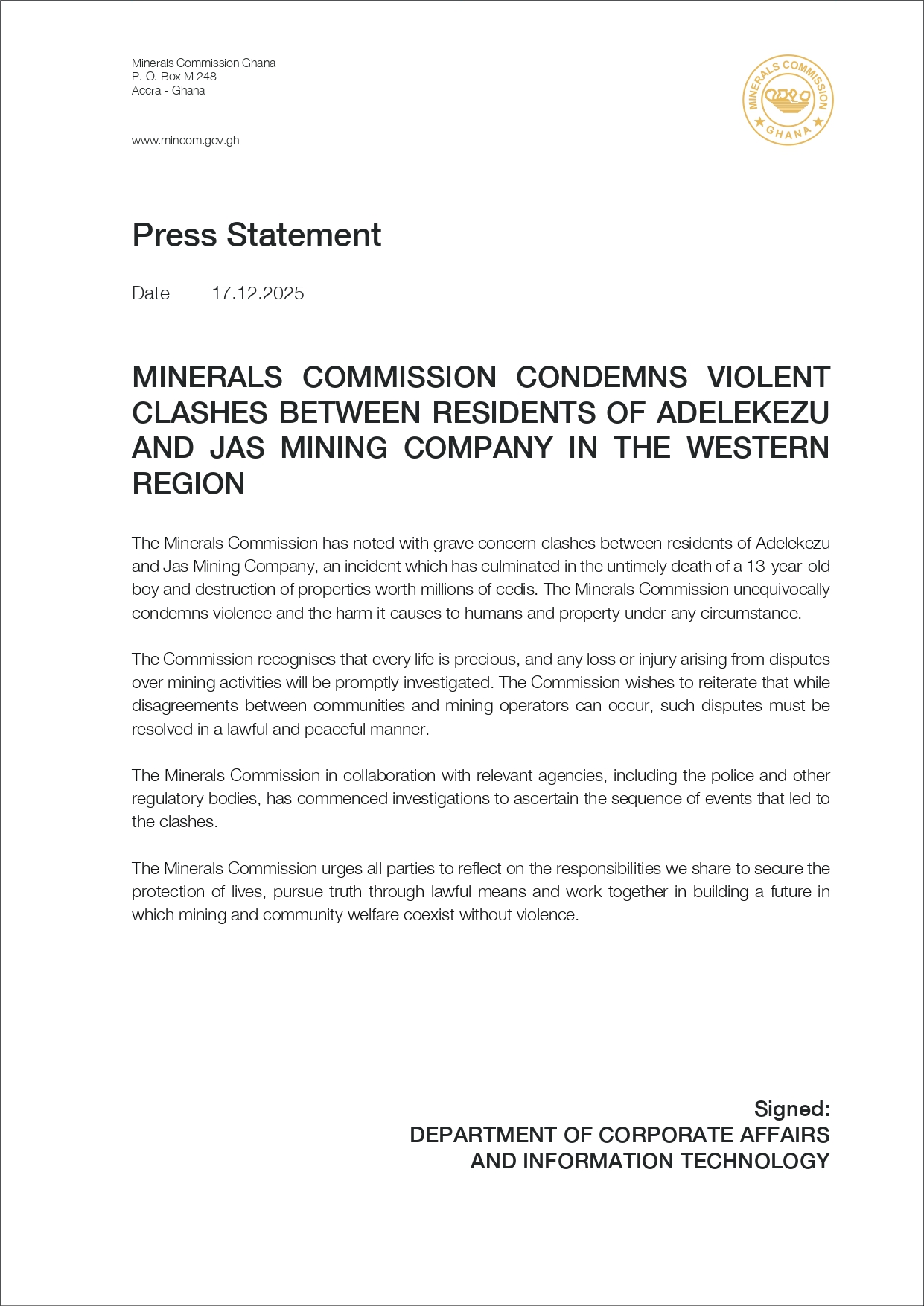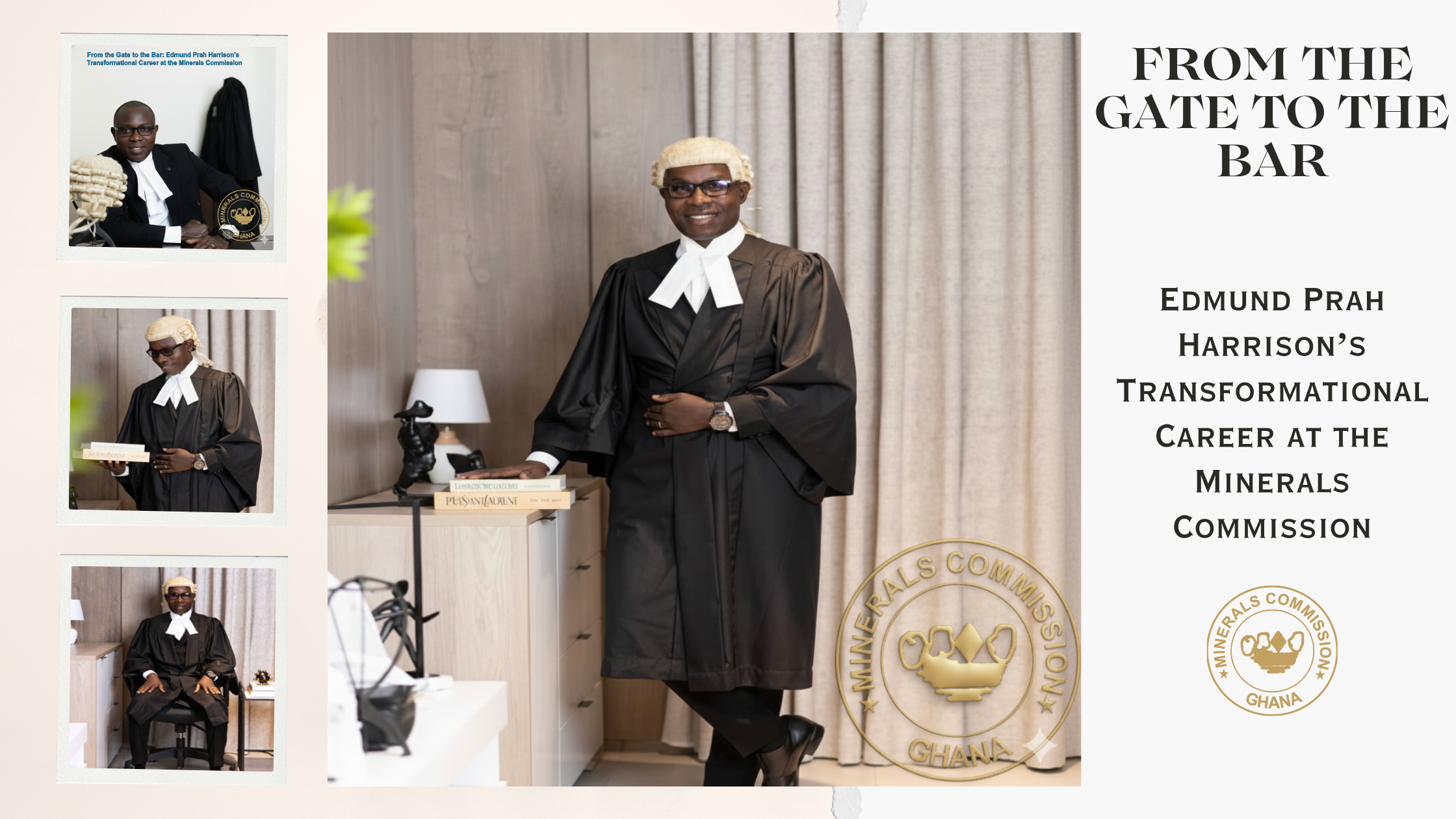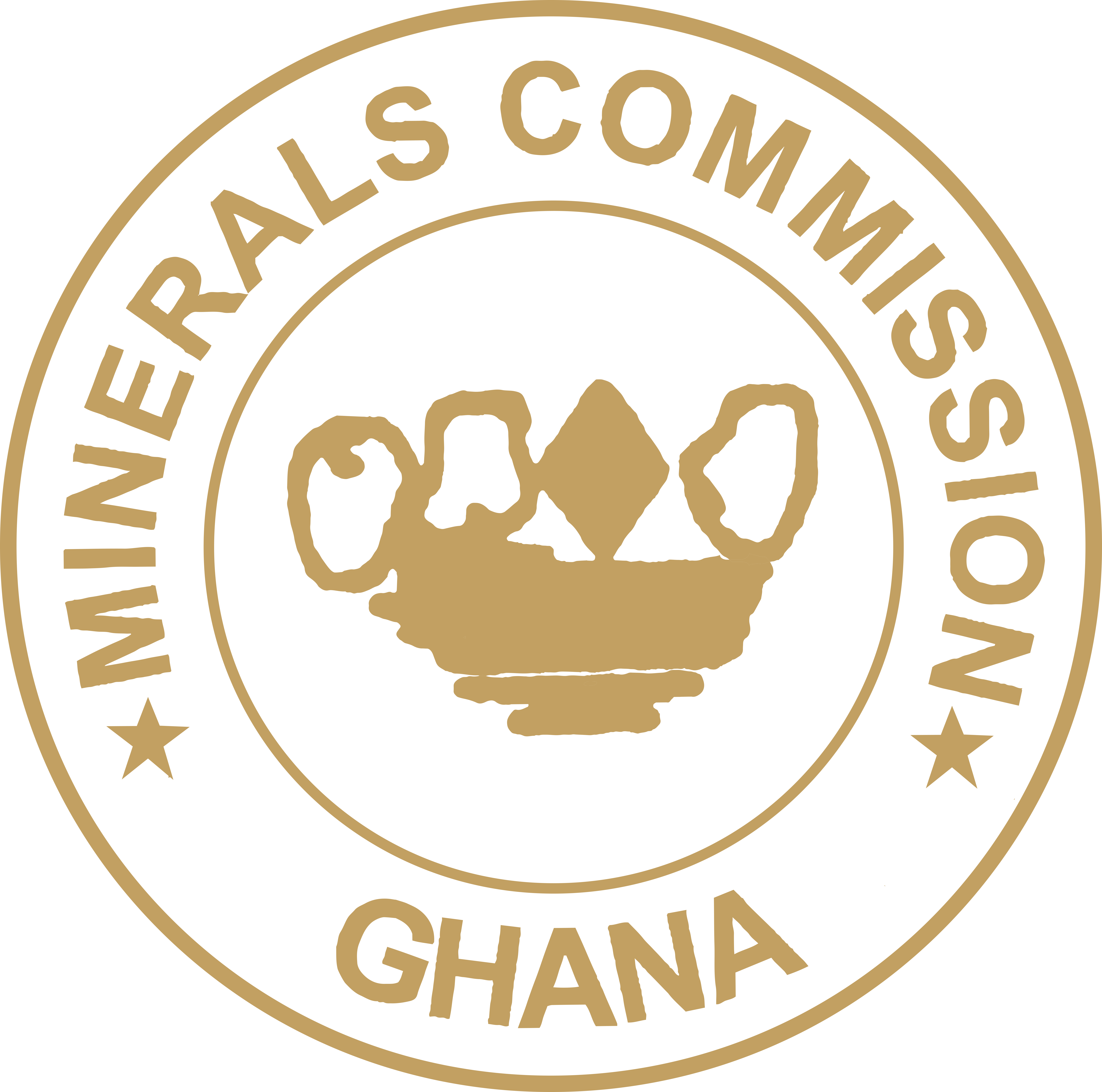Minerals Commission Awarded At Gold Statement 2025 Conference
The Commission has been honoured for its exceptional regulatory leadership and enduring partnership with the jewellery industry. The recognition was bestowed during the prestigious Gold Statement 2025 Gala Night, held on November 29 at the Golden Bean Hotel in Kumasi.
The glittering ceremony marked the grand finale of the two-day Gold Statement summit, a platform that has significantly evolved from a national forum into a truly Pan-African dialogue concerning the jewellery and minerals sector.
Against a backdrop of dazzling jewellery showcases and cultural performances, the Commission was presented with a special award acknowledging its pivotal role in developing and regulating the industry. The honour specifically highlighted the Commission’s critical work in formalising Ghana’s artisanal and small-scale mining landscape, reinforcing the conference theme that the prosperity of Ghana’s jewellery sector is inextricably linked to responsible mining practices.
Speaking at the event, Madam Judy Nakuor Crayem, Chairperson of Gold Statement and CEO of Rapport Services, underscored the vital importance of collaboration between regulators and private industry. She noted that the award bestowed upon the Commission symbolised the sector’s deep appreciation for this continued partnership.
This award is not just for the Commission; it is a recognition of the shared vision we hold with every miner, jeweller, and designer in this room. It reaffirms our collective commitment to transforming Ghana’s mineral wealth into a source of sustainable livelihood, environmental responsibility, and global pride through jewellery. The Commission is committed to deepening this collaboration to ensure our gold tells a story of integrity from the mine to the market. The award positions the Commission as a key architect in building a transparent, sustainable, and globally competitive value chain for Ghanaian gold.
The Gold Statement 2025 successfully convened a diverse and influential gathering, blending high-level policy discussions with technical presentations and a major jewellery exhibition.
This year’s edition saw significant continental expansion, hosting patrons from Nigeria, Malawi, Botswana, Tanzania, and Côte d’Ivoire, among others. The programme attracted high-level sponsorship and collaboration from the United Nations Development Programme (UNDP), the African Union’s African Minerals Development Centre (AMDC), and the Africa Gem Jewellery Exhibitions & Conference.
Furthermore, the event successfully charted a coherent path for future industry development. A significant milestone included the cementing of a partnership between the Lapidary Institute of Ghana, industry stakeholders, and the Kwame Nkrumah University of Science and Technology (KNUST).
The 2025 summit concluded with a renewed focus on the convergence of responsible mining, championed by the Commission, skills development through academic collaboration, and international support to build a resilient, ethical, and globally competitive African jewellery industry.
– END –
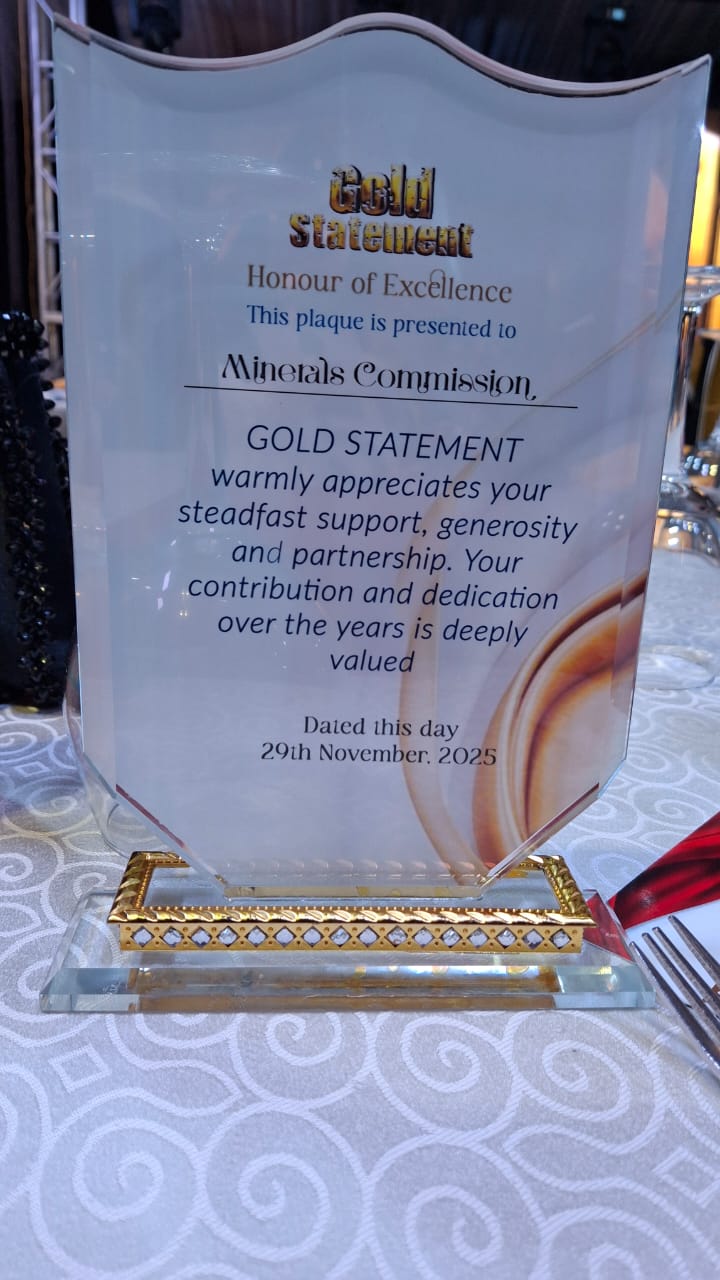
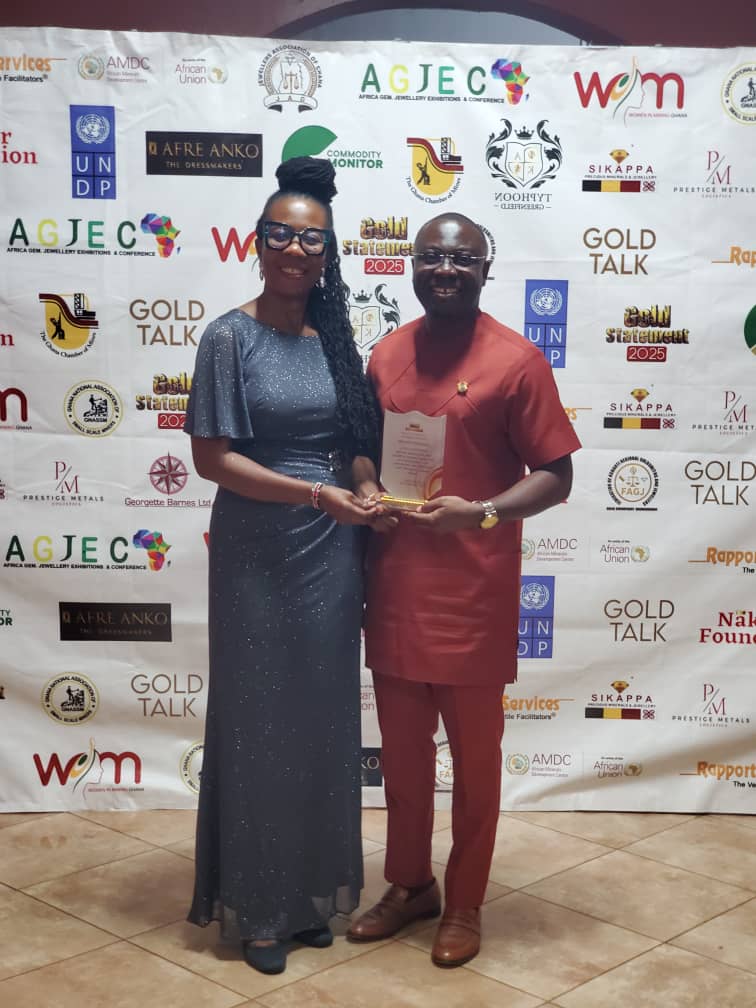

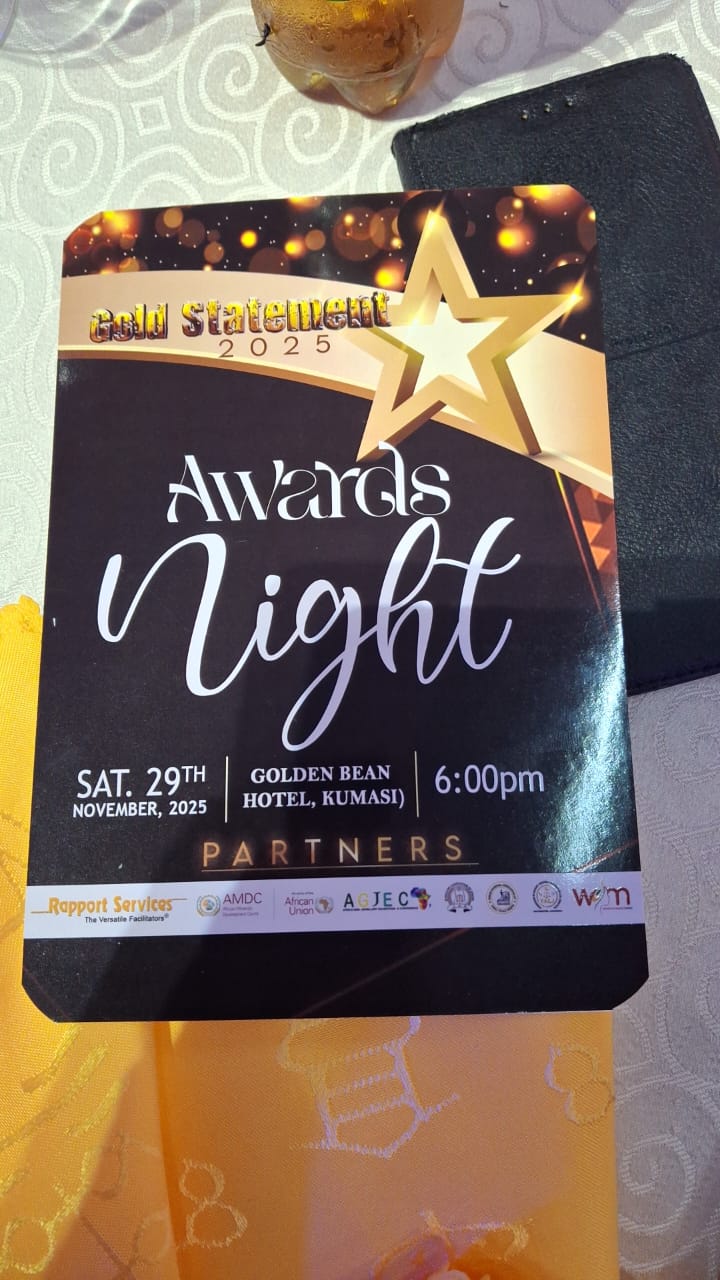
Minerals Commission Reaffirms Commitment To Sustainable Local Content Development At Mime 2025
The Commission reinforced its pivotal role in advancing responsible mining and sustainable local content development through its active participation in the 2025 Mining Industry Marketing Expo (MIME). The event, organized by the Ghana Chamber of Mines in partnership with key sector stakeholders, was held at the University of Mines and Technology (UMaT) in Tarkwa from November 12-13, 2025. This annual forum convened industry leaders, businesses, and policymakers to explore pathways toward sustainable growth and enhanced local participation in Ghana’s mining sector.
Led by Madam Victoria Awuni, Deputy CEO for Policy Planning, Mineral Titles & Local Content, and Mr. Ben Birch-Mensah, Director of Local Content, the Commission’s delegation presented a range of strategic policies and programs designed to empower Ghanaian enterprises within the mining value chain. Through a dedicated exhibition booth, the Commission offered stakeholders an interactive platform to engage with regulatory frameworks, licensing procedures, and supplier development opportunities.
A central feature of the Expo was the Business-to-Business (B2B) Sessions, which enabled direct dialogue between mining companies, input manufacturers, and local suppliers. The Commission’s involvement in these sessions highlighted its ongoing commitment to fostering collaboration, promoting value addition, and facilitating meaningful partnerships within the industry.
By taking part in MIME 2025, the Commission reiterated its dedication to cultivating an enabling environment where local businesses can thrive. These efforts align with the broader objective of ensuring that Ghana’s mining sector remains competitive, inclusive, and anchored in sustainable national development.
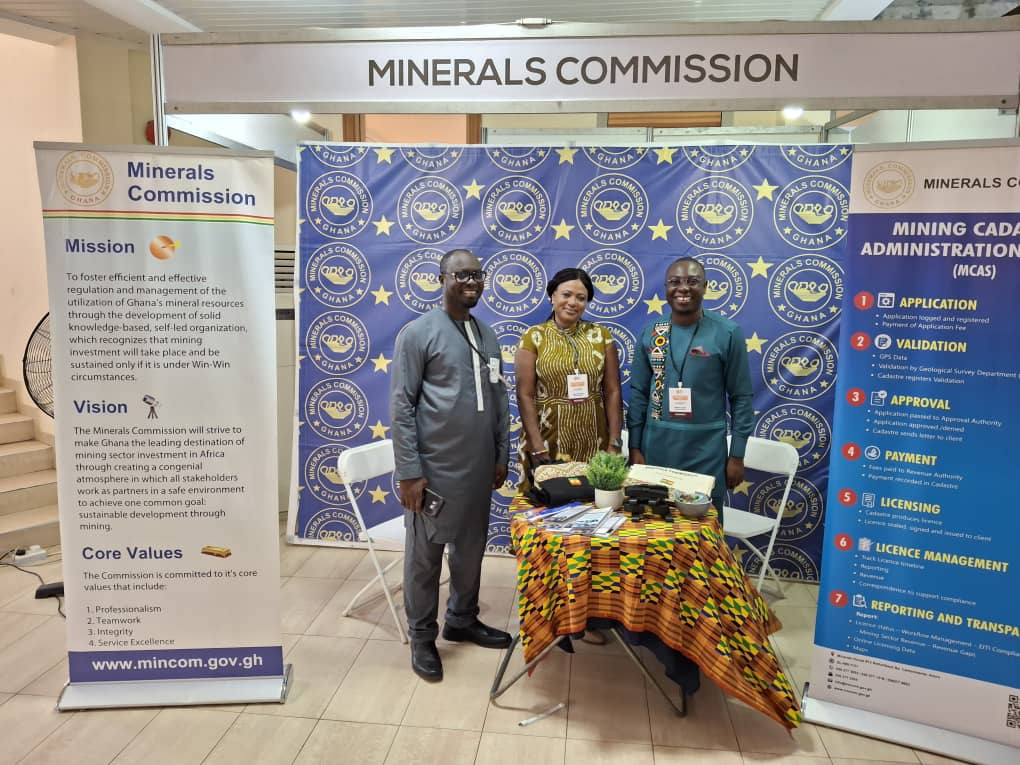
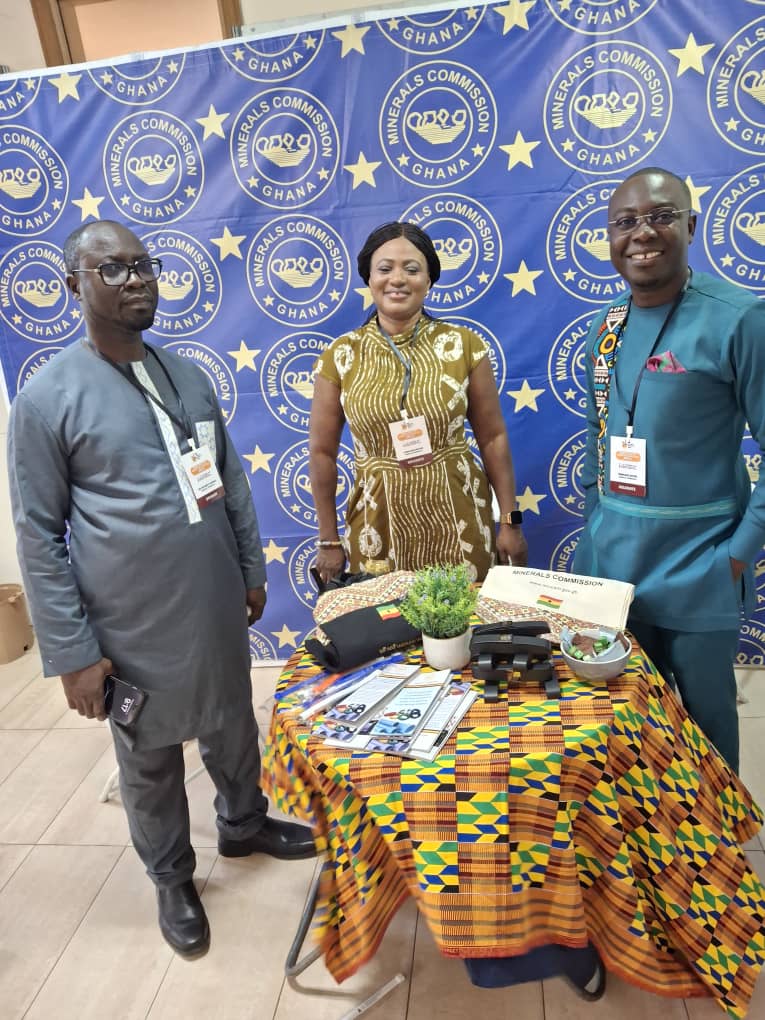
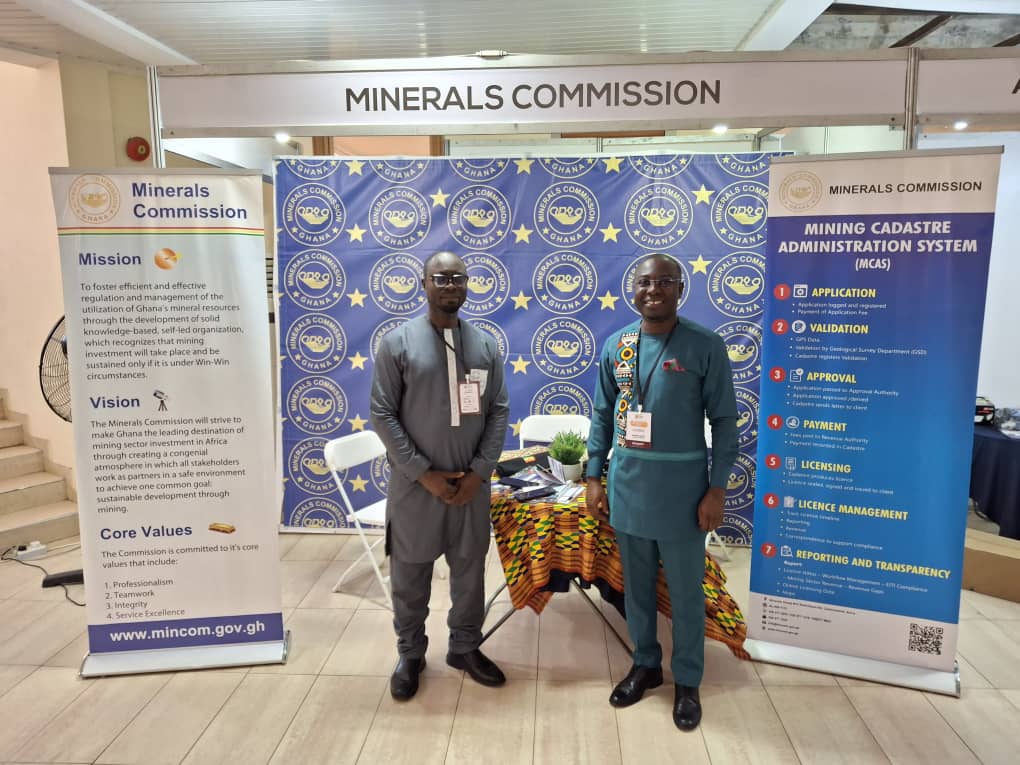
Government Reaffirms Commitment to Green Mining, Calls for Responsible Media Reporting
Government Reaffirms Commitment to Green Mining, Calls for Responsible Media Reporting
Speaking at the opening ceremony of a three-day training workshop for editors and reporters on the theme “Green Mining: Best Practices and Responsible Reporting” in Aburi on Thursday, December 11, 2025, the minister said mining activities must be managed carefully to reduce their negative impact on water bodies, land, and air quality.
The Minister of Lands and Natural Resources, Emmanuel Armah-Kofi Buah, has reiterated government’s commitment to sustainable mining practices and environmental protection, while urging journalists to adopt responsible and data-driven reporting to support the fight against illegal mining.
The keynote address was delivered on his behalf by Mr. Maxwell Klu, Deputy Chief Executive Officer of the Minerals Commission.
Mr. Buah described green mining as a sustainable approach to mineral extraction that minimizes environmental damage through renewable energy use, waste reduction, water conservation, mercury-free extraction techniques, community engagement, land reclamation, and carbon footprint reduction.
According to him, the adoption of green mining practices is a critical tool in addressing illegal mining, popularly known as galamsey, which he described as a serious threat to Ghana’s environment, socio-economic stability, and long-term development.
Legal and Policy Framework
The minister highlighted Ghana’s strong legal regime governing mining activities, noting that the Minerals and Mining Act, 2006 (Act 703), as amended by Acts 900 and 995, criminalizes mining without a license and prescribes severe penalties, including prison terms ranging from 15 to 25 years.
The law also bans mining in protected areas and strengthens enforcement through measures such as tighter controls on excavator imports.
He also referenced the Environmental Protection Act, 2025 (Act 1124) as a key legislative instrument aimed at safeguarding the country’s environment.
Beyond domestic laws, Mr. Buah said Ghana remains committed to international environmental standards, citing the country’s ratification of major global conventions, including the UN Framework Convention on Climate Change (UNFCCC), the Paris Agreement, and the Vienna Convention for the Protection of the Ozone Layer.
“These conventions, treaties and national laws are a testament to Ghana’s commitment to responsible mining and environmental stewardship,” he said.
Role of the Media
The minister stressed that the media plays a critical role in shaping public understanding of mining and environmental issues, urging journalists to prioritize technical knowledge, ethical accountability, and investigative, data-driven reporting.
He called on reporters to deepen their understanding of mining processes, laws, and regulatory frameworks, and to hold all stakeholders accountable while remaining fair, people-centered, and open to criticism.
Responsible reporting, he said, should also highlight reclamation efforts and interventions by institutions such as the National Anti-Illegal Mining Operations Secretariat (NAIMOS) and other agencies involved in combating illegal mining.
Government Interventions
Mr. Buah disclosed that government has laid before Parliament an instrument to revoke Legislative Instrument (L.I.) 2462, which allows the President to grant mining licenses in forest reserves.
The move, he said, aligns with broader national efforts to curb illegal mining and protect forest resources.
He further cited initiatives such as the Responsible Cooperative Mining and Skills Development Programme (rCOMSDEP) as part of government’s integrated strategy to address galamsey.
Industry Recognition and the Way Forward
Highlighting progress within the mining industry, the minister praised companies that have demonstrated excellence in green mining practices.
Newmont Ghana Gold Limited’s Ahafo South Mine emerged as the Best Green Mine at the 11th Ghana Mining Industry Awards (GMIA) in 2025, earning recognition for innovation, environmental stewardship, and community development.
AngloGold Ashanti Iduapriem Mine and Gold Fields Ghana Limited’s Tarkwa Mine were also commended for strong performance in areas such as carbon reduction, land and water management, active reclamation, and biodiversity restoration.
Mr. Buah said the Ministry envisions global mining firms and Green Mine award winners mentoring small-scale mining operations to help address illegal mining.
He concluded by calling on the media and the “fourth estate of the realm” to uphold ethical standards, collaborate with government, and help keep the public informed and protected.
“Green mining is a shared mission,” he said, urging journalists to engage credible data sources, adopt practical reporting tools, and promote multi-stakeholder dialogue.
The workshop is expected to enhance journalists’ capacity to report accurately and responsibly on mining and environmental issues in Ghana.
****END****
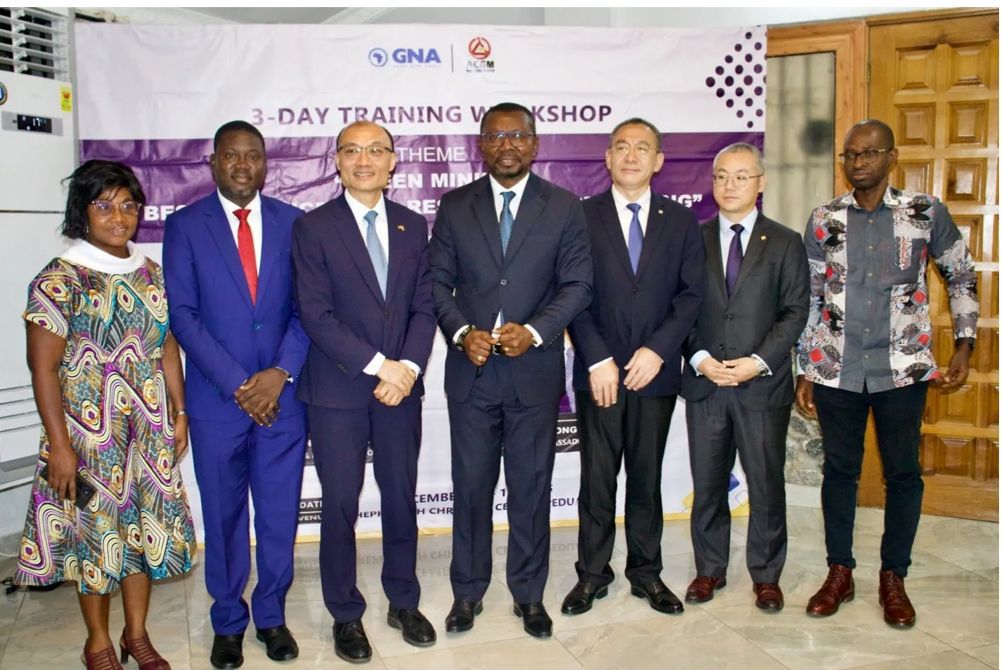
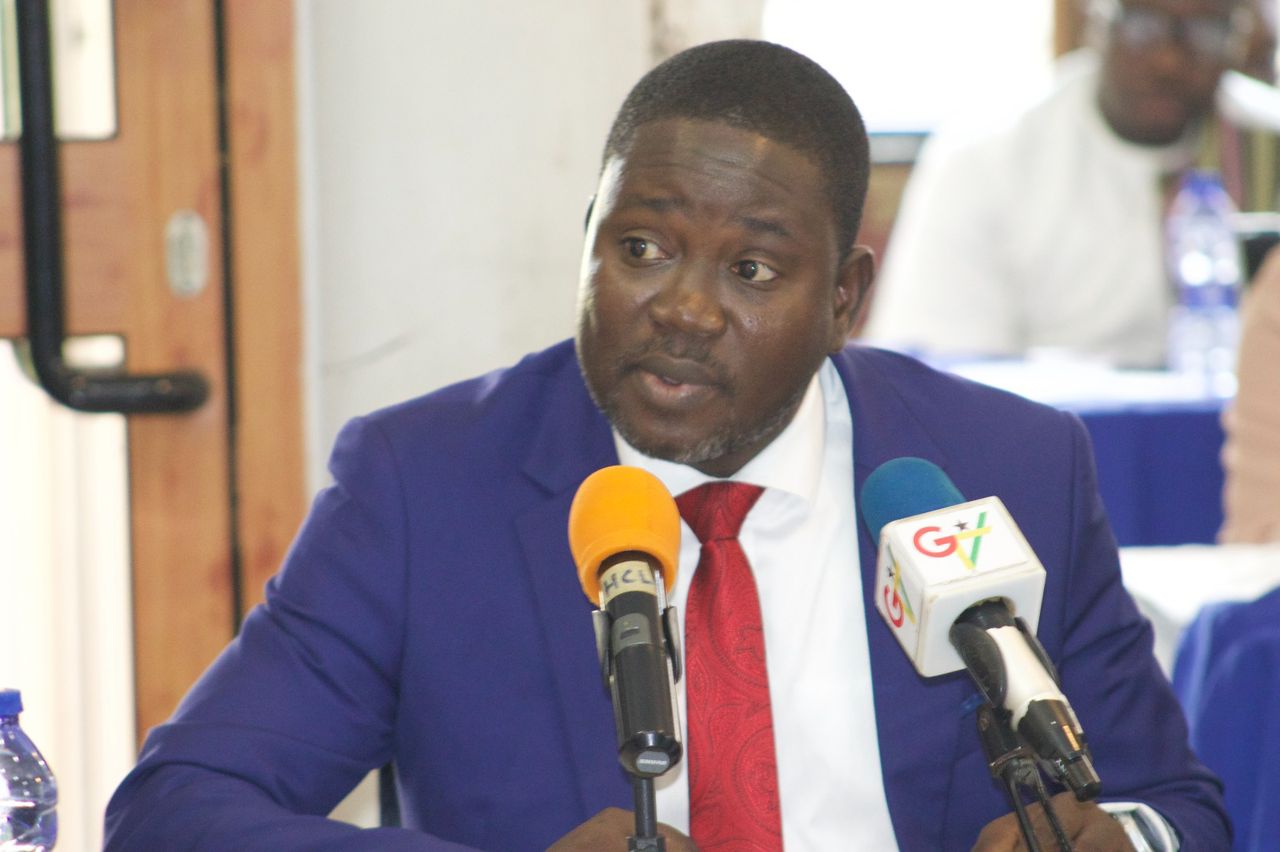
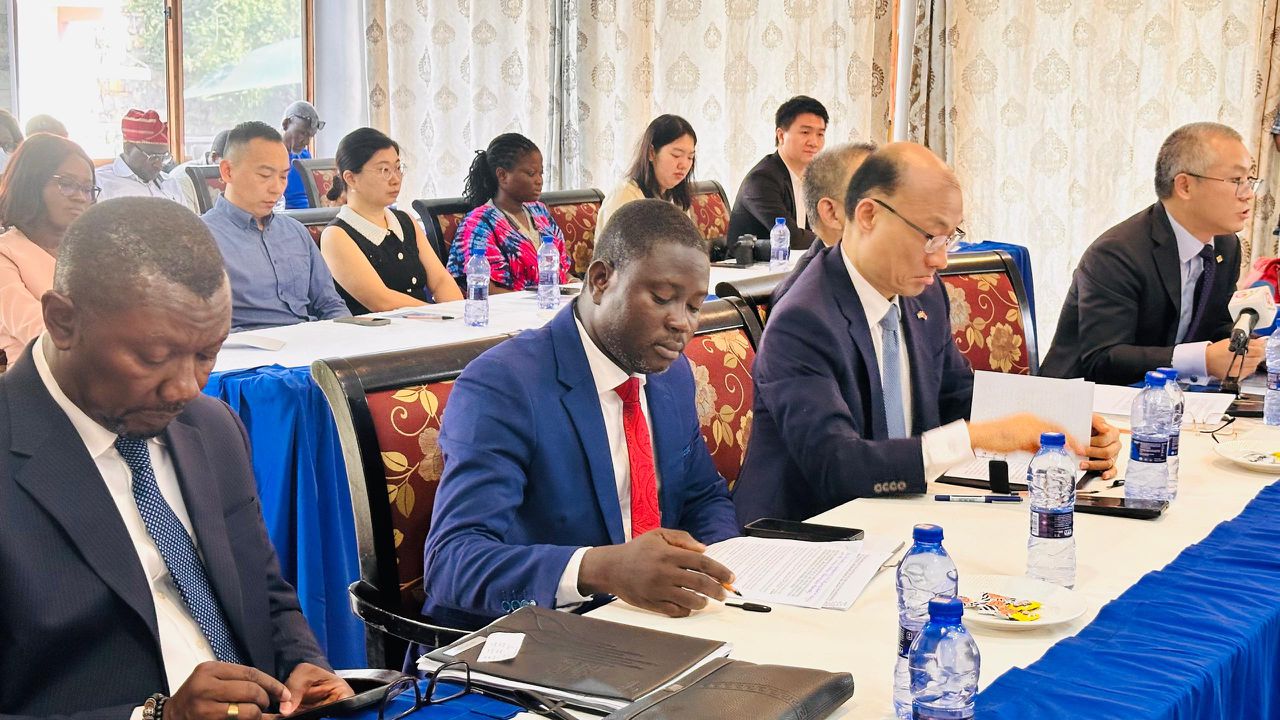
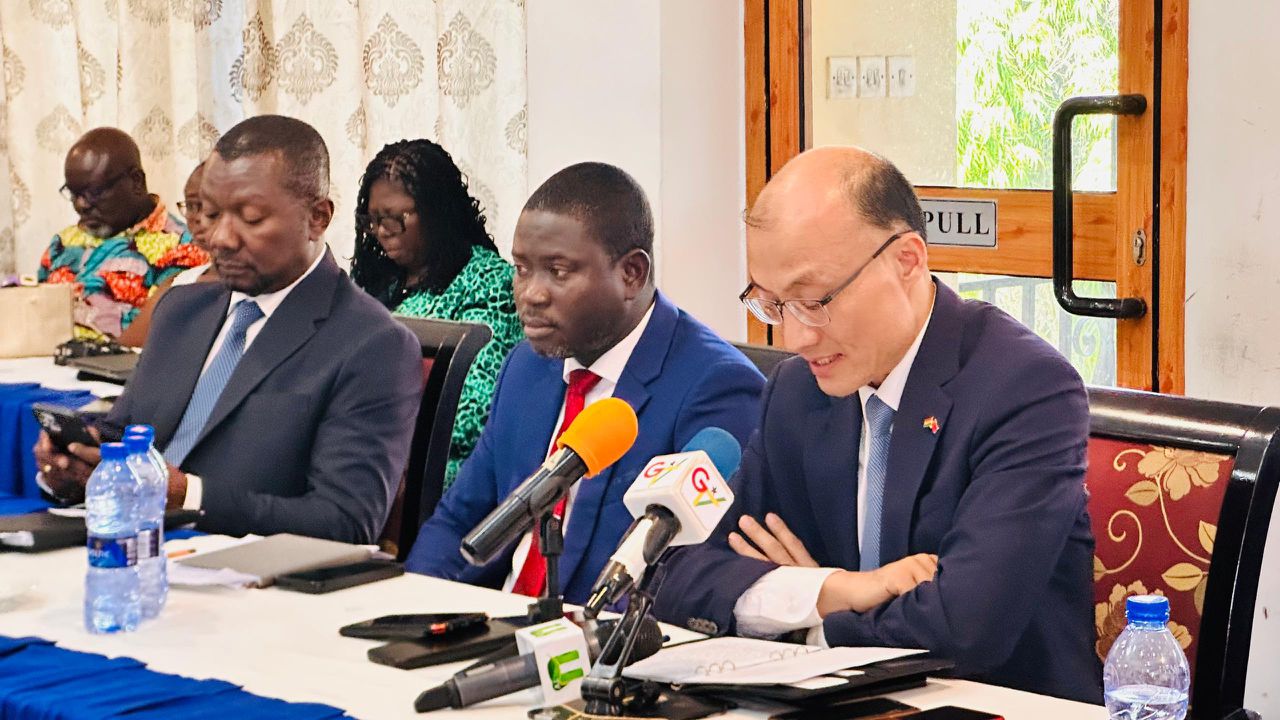
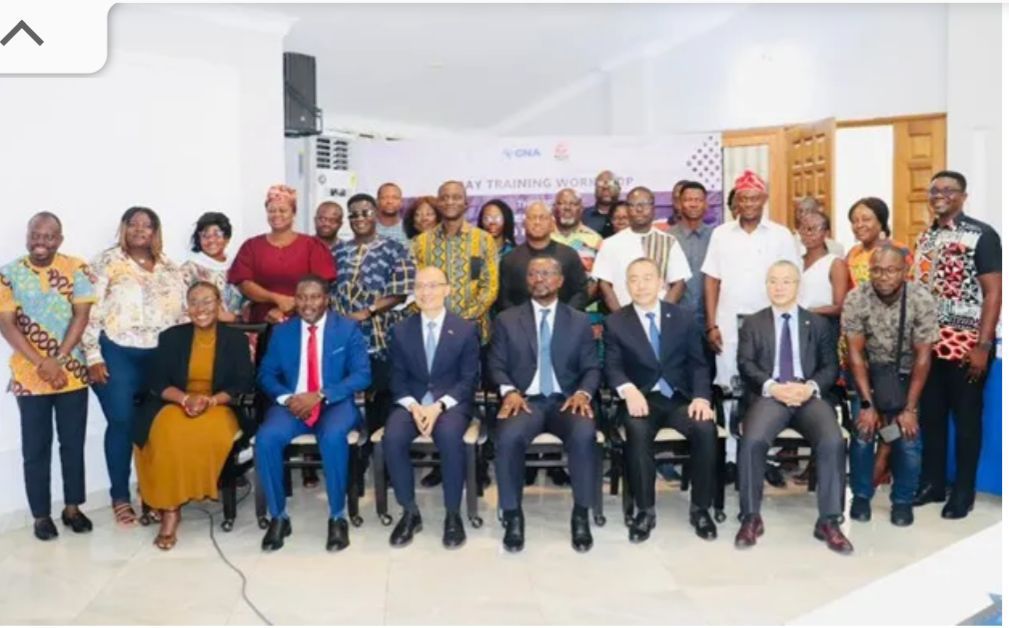
LANDS MINISTER COMMISERATES WITH NAIMOS TASKFORCE OVER DEATH OF COLLEAGUE
LANDS MINISTER COMMISERATES WITH NAIMOS TASKFORCE OVER DEATH OF COLLEAGUE
November 20, 2025 – The Minister for Lands and Natural Resources, Hon. Emmanuel Armah-Kofi Buah (MP), accompanied by Mr. Isaac Tandoh, Acting Chief Executive Officer of the Minerals Commission, and other senior officials, visited the National Anti-Illegal Mining Operations Secretariat (NAIMOS) to offer condolences to the team following the tragic loss of a taskforce member in a road accident near Obuasi.
During the visit, the Minister and his delegation commiserated with the leadership and members of the Secretariat. The Hon. Emmanuel Armah-Kofi Buah, on behalf of His Excellency the President of the Republic, President John Dramani Mahama, expressed sympathy and solidarity with the security forces.
The Hon. Minister led the delegation to sign the book of condolence opened in honour of the fallen officer, recognizing his dedication to Ghana’s anti-illegal mining efforts. The Minister reaffirmed the Ministry’s commitment to the safety and welfare of frontline operatives, acknowledging the courage and sacrifice of the NAIMOS Officials. He assured them of government’s continued support, “This is a moment of shared grief, but also of renewed resolve. The nation stands with you. Your work is noble, and your fallen colleague’s legacy will not be forgotten” he remarked.
The Ministry and Minerals Commission are working with the bereaved family to provide support and ensure a dignified farewell for the departed Officer. The Minister commended the team’s resilience, professionalism, and dedication, stating, “In the face of adversity, the strength of a team is revealed. Let this moment of sorrow remind us of the profound impact of your service to Ghana. Together, we will uphold the values of integrity, courage, and commitment that define our collective mission.”
Issued by:
CORPORATE AFFAIRS AND INFORMATION TECHNOLOGY DEPARTMENT
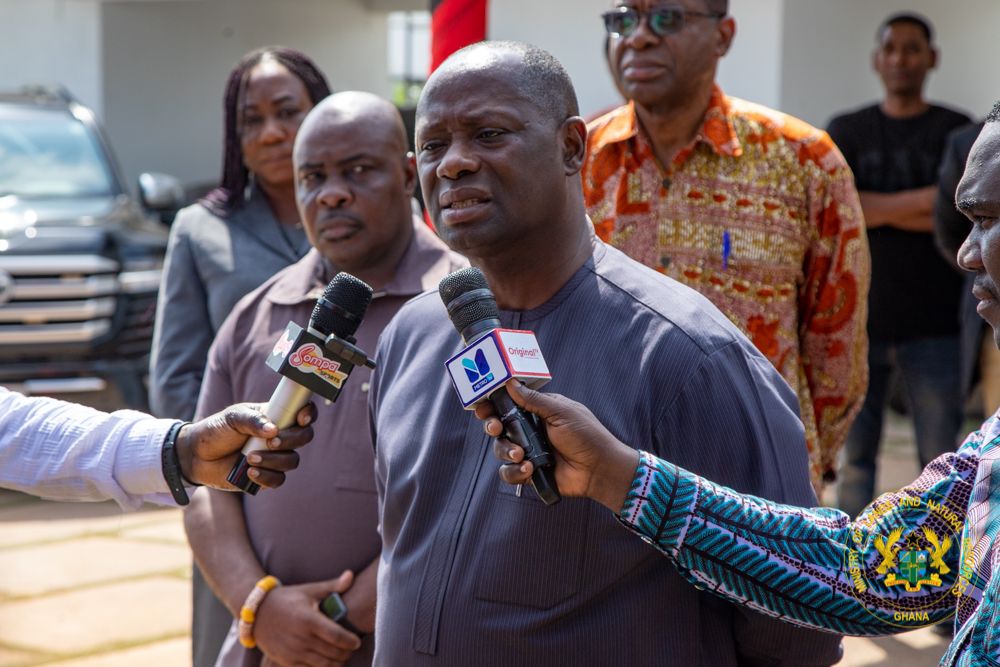
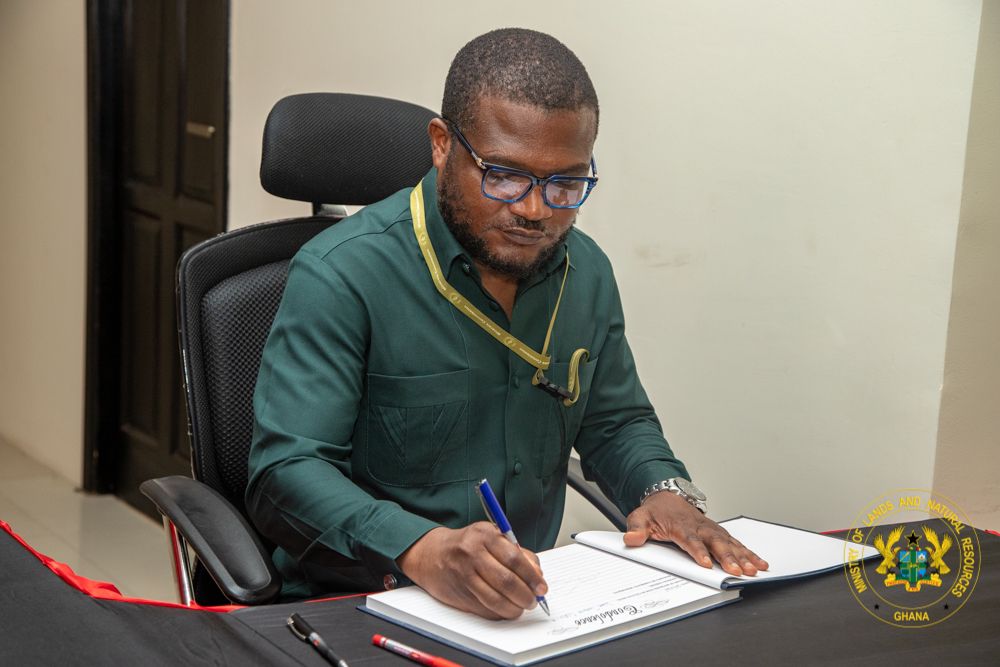
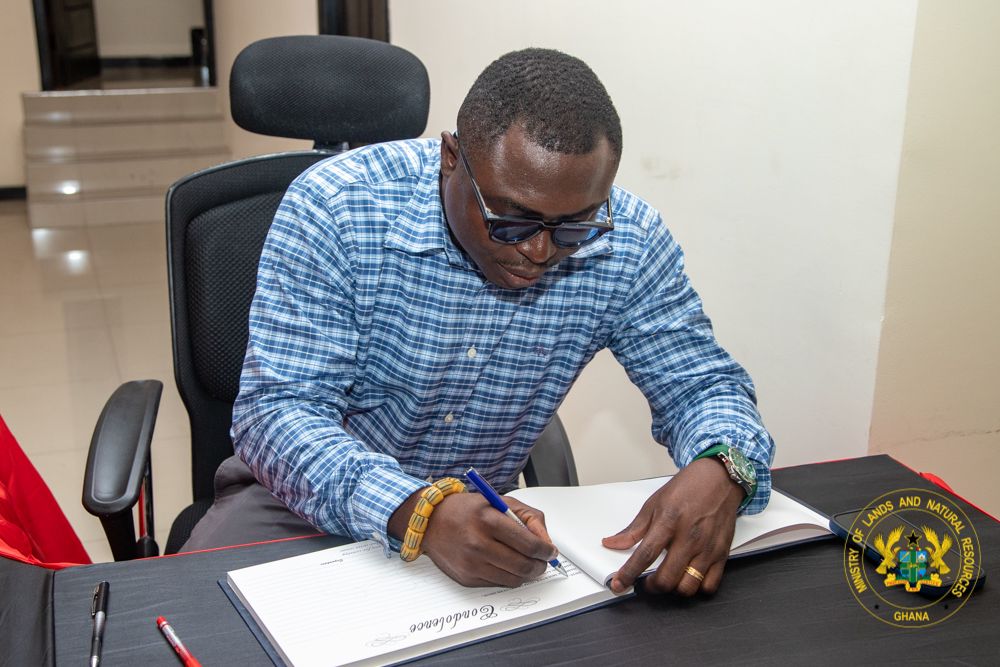
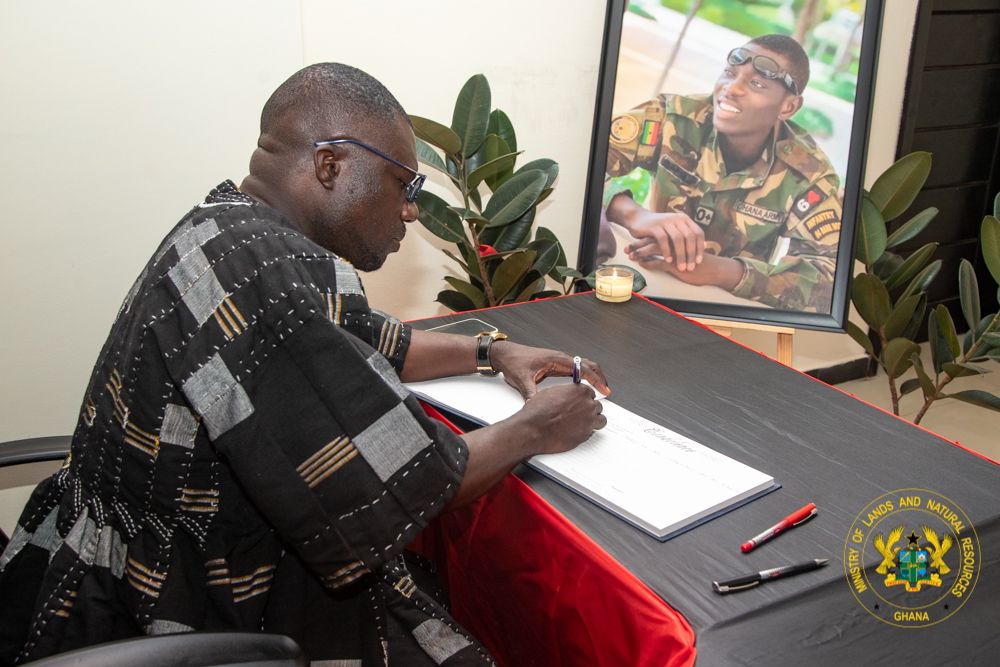
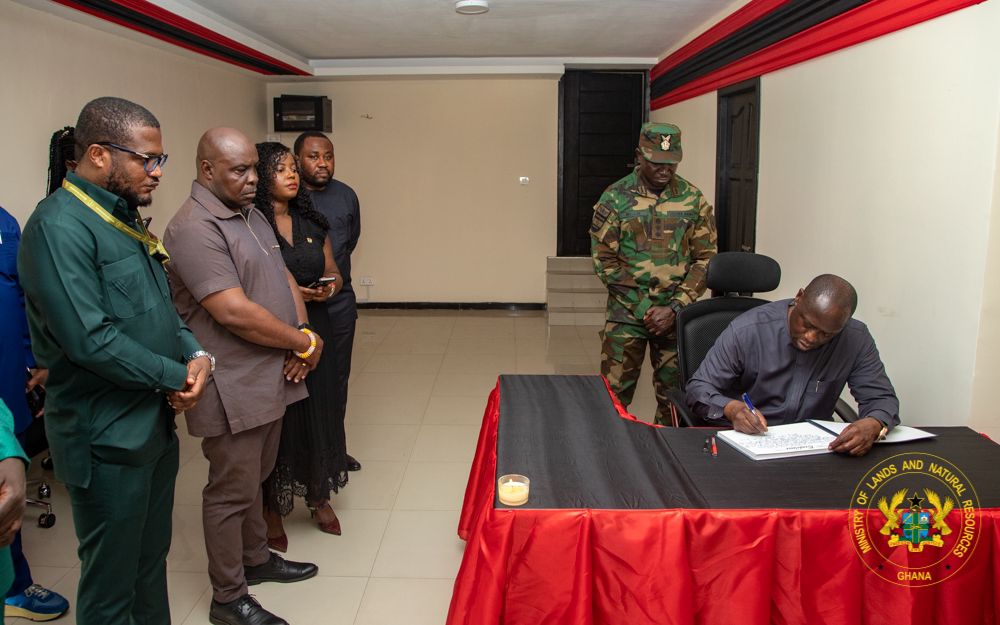
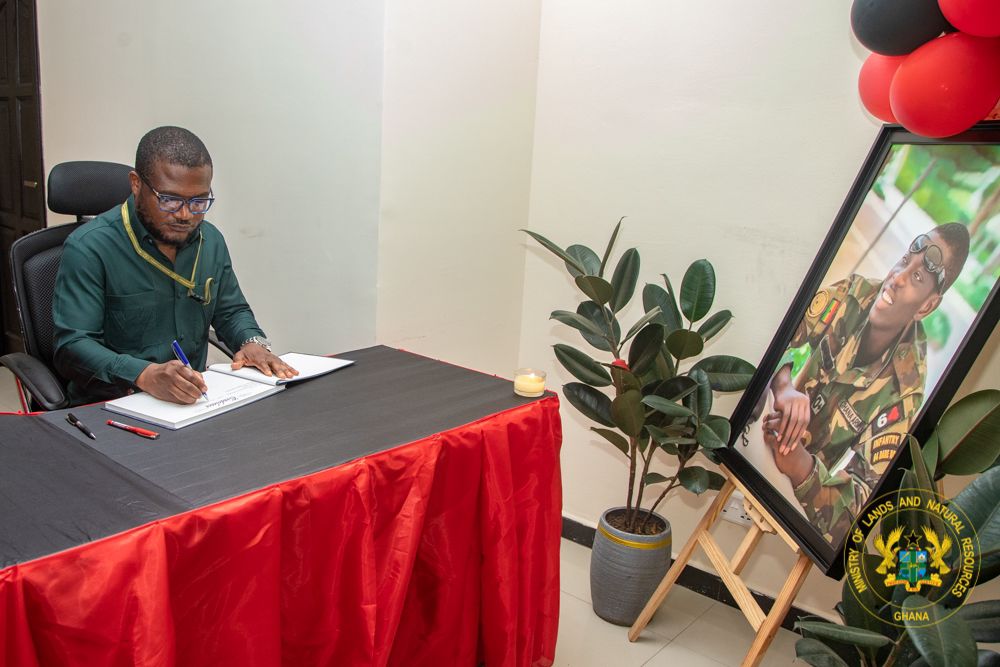
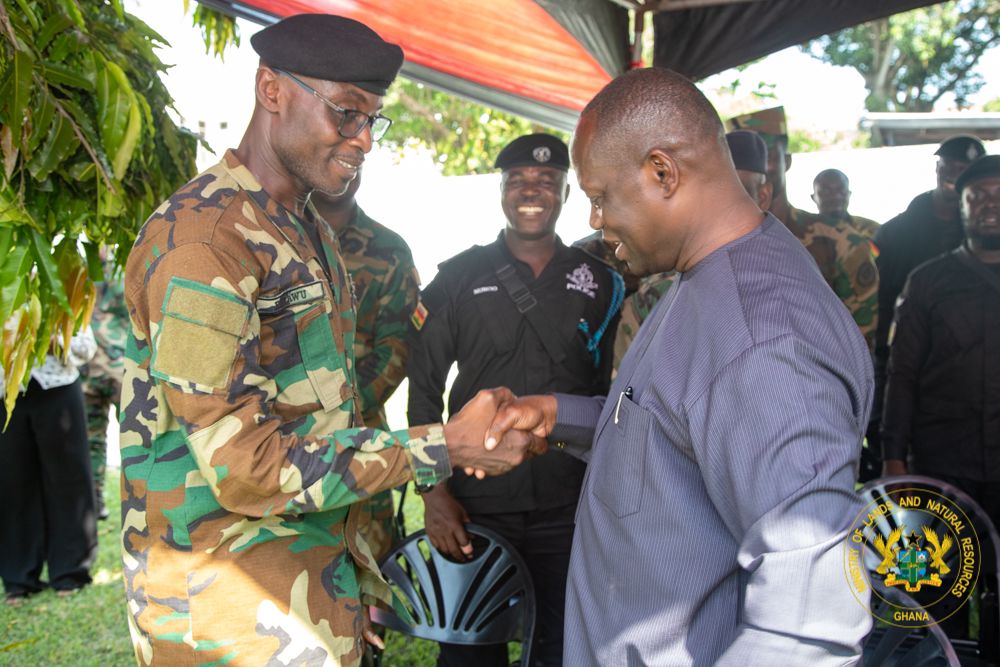
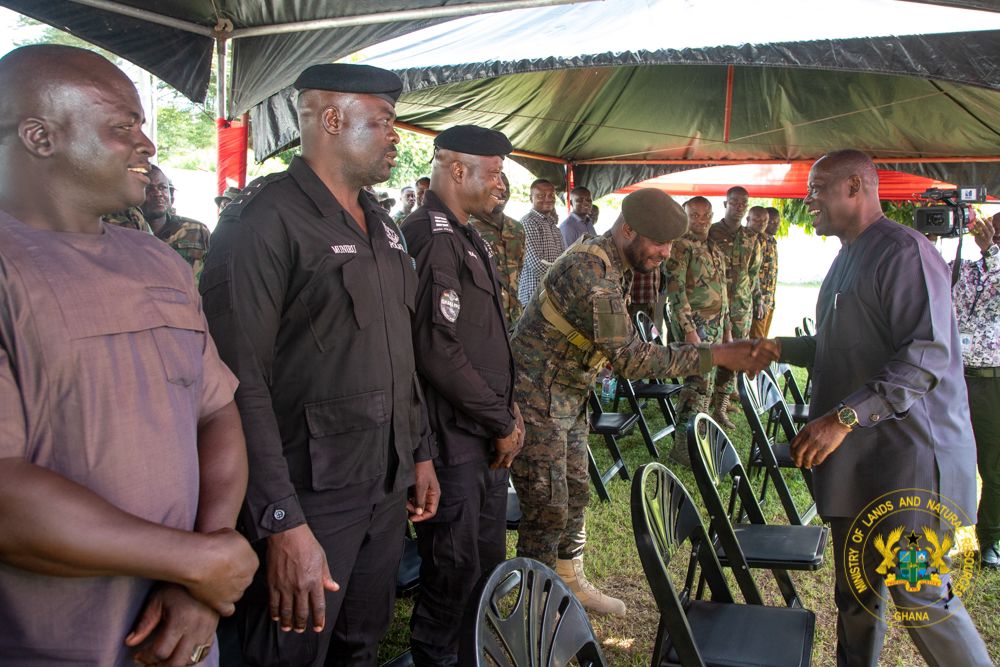
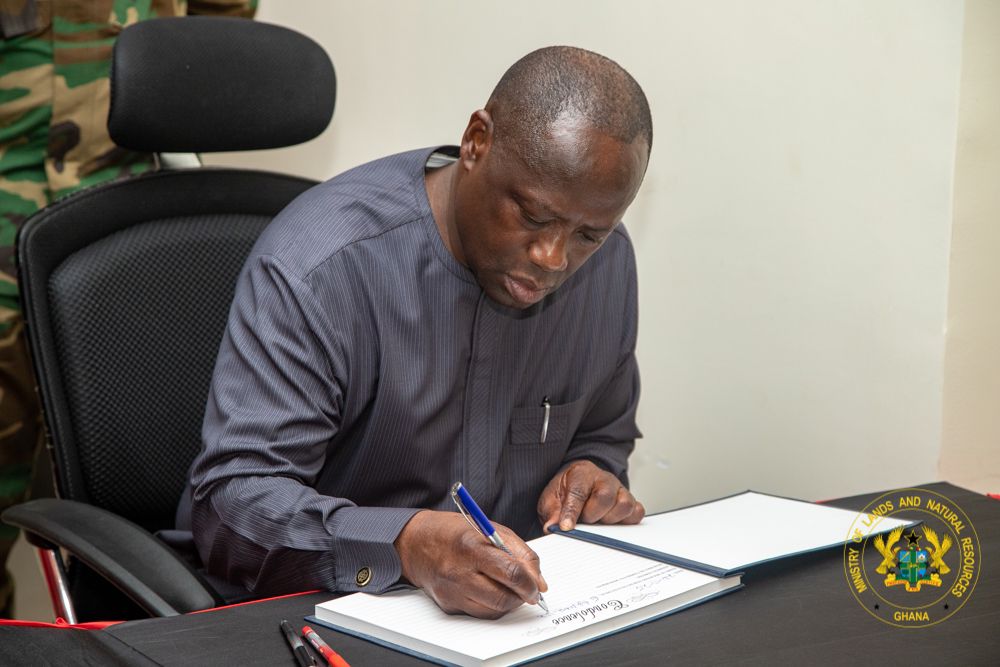
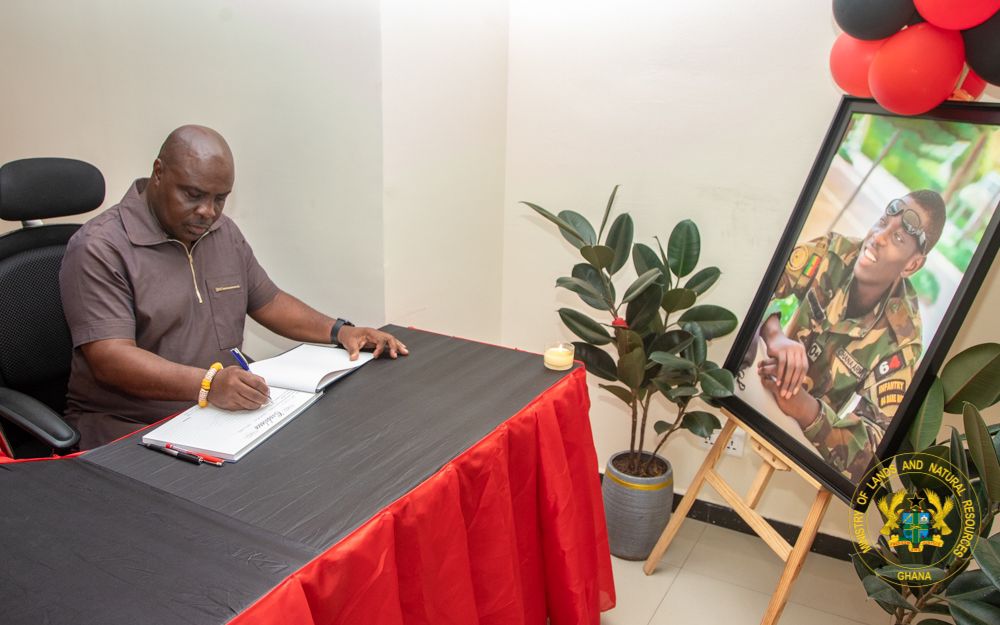
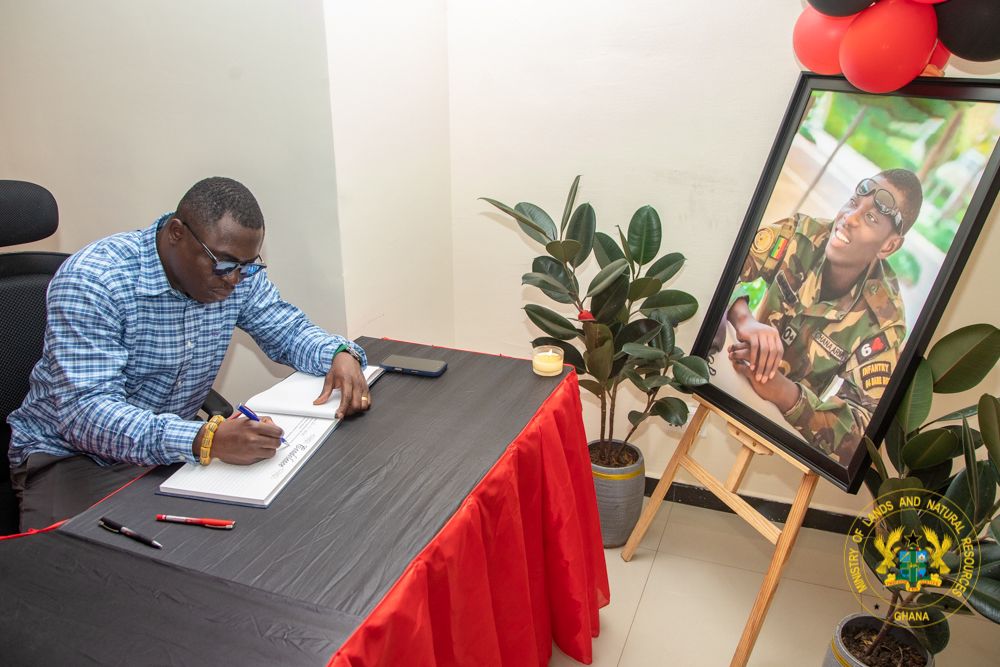
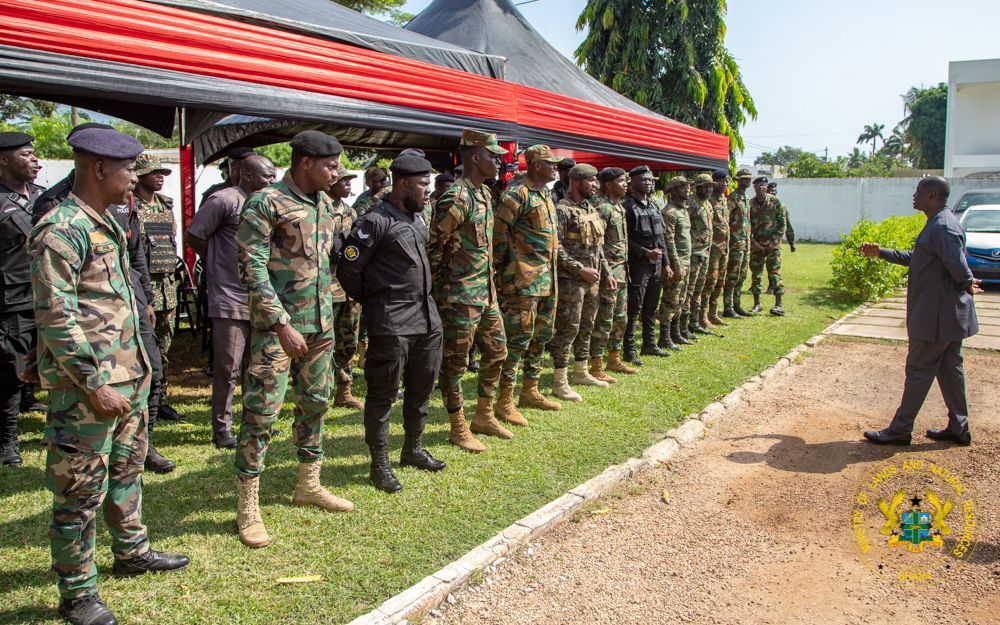
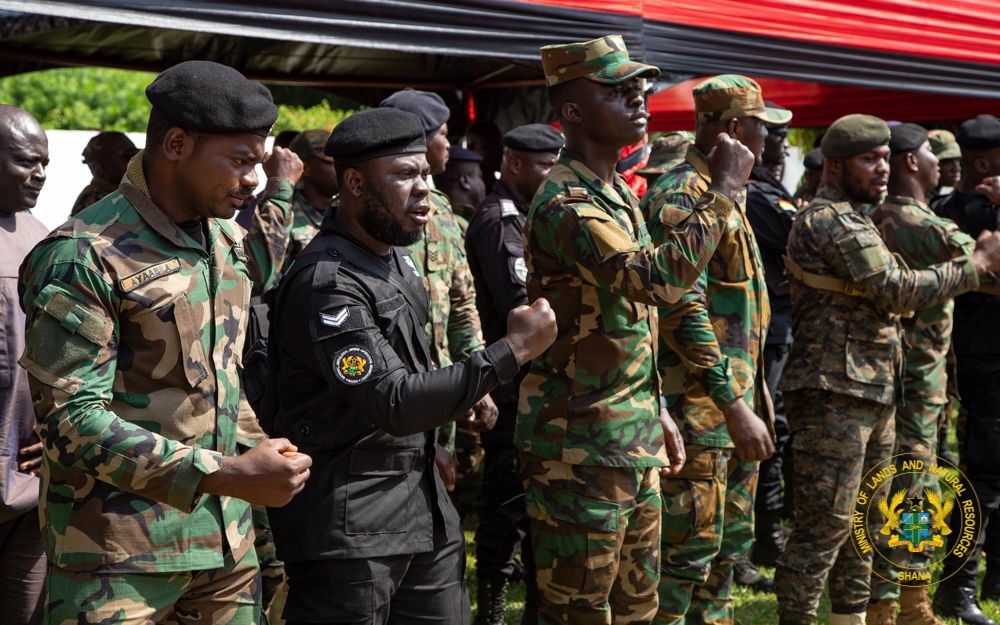
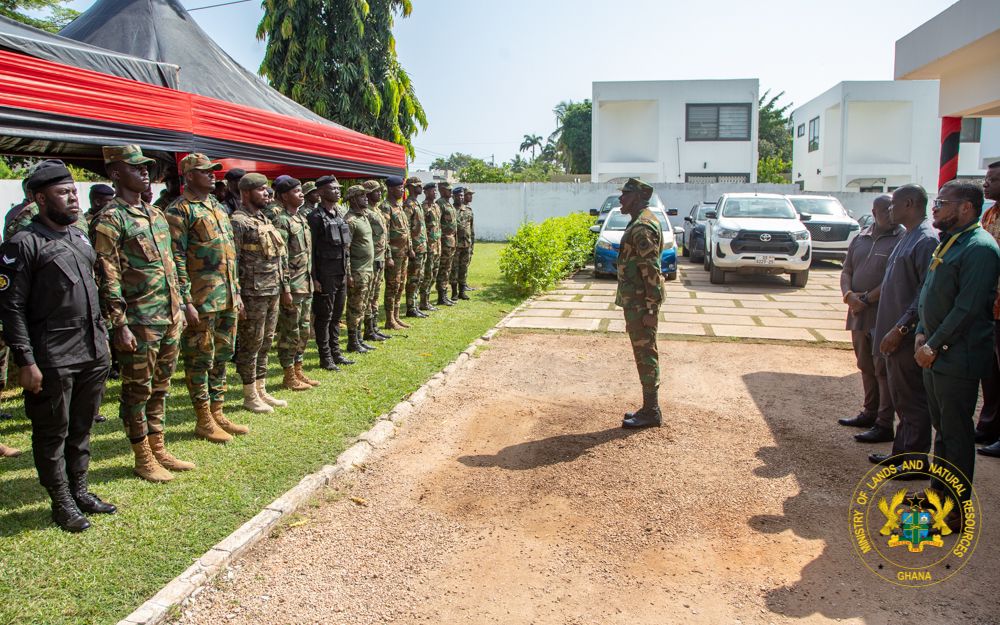
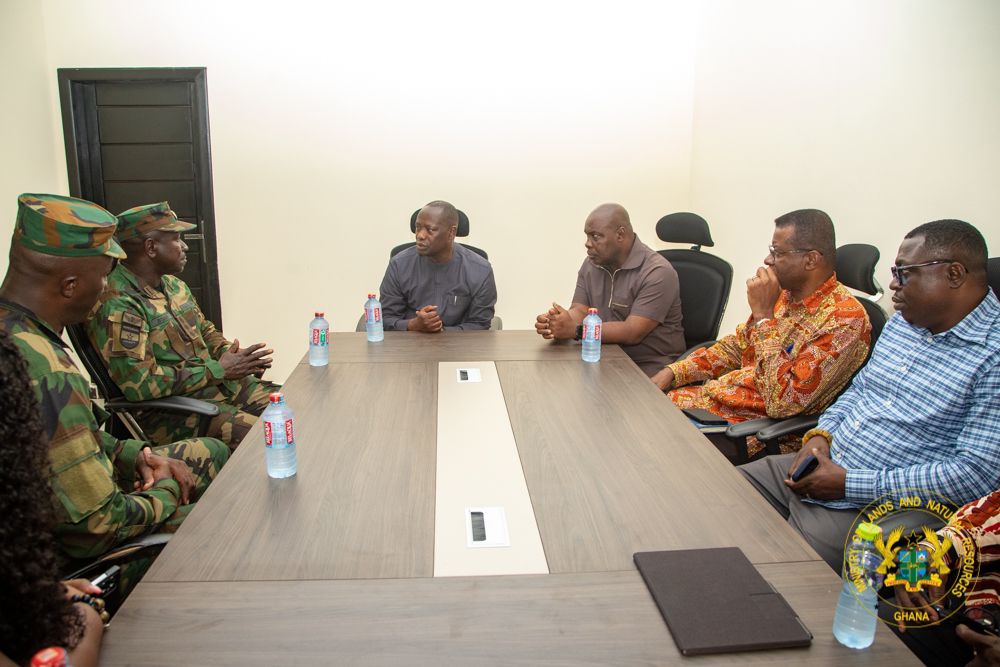
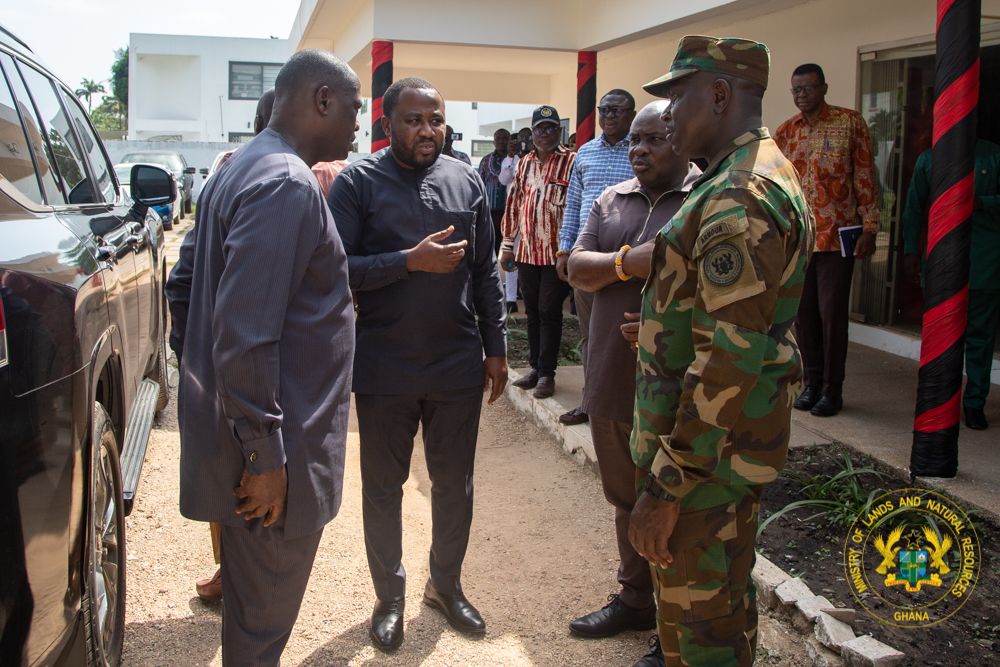
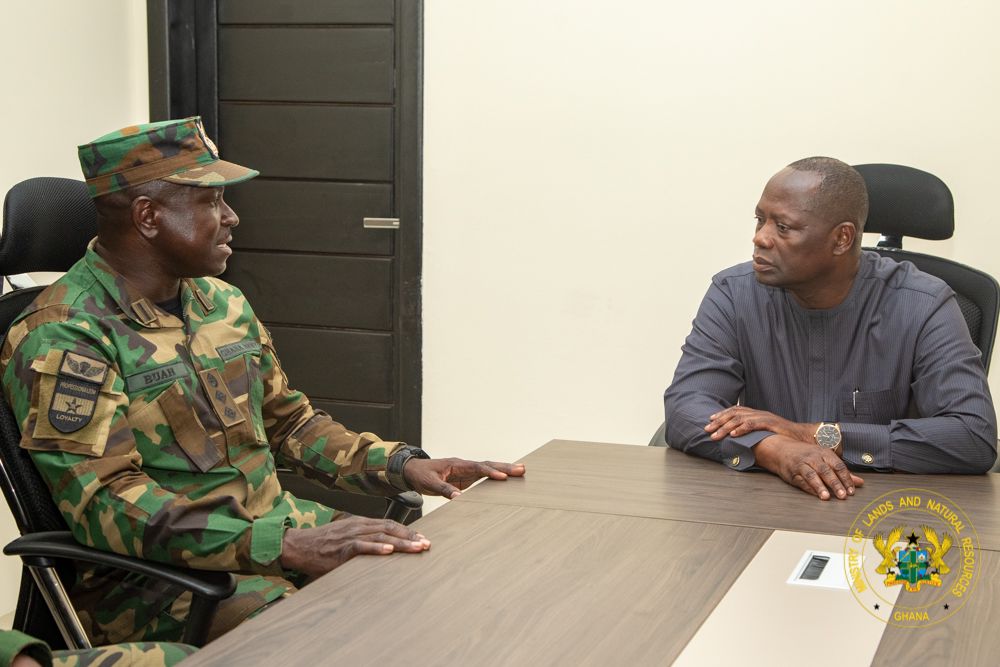
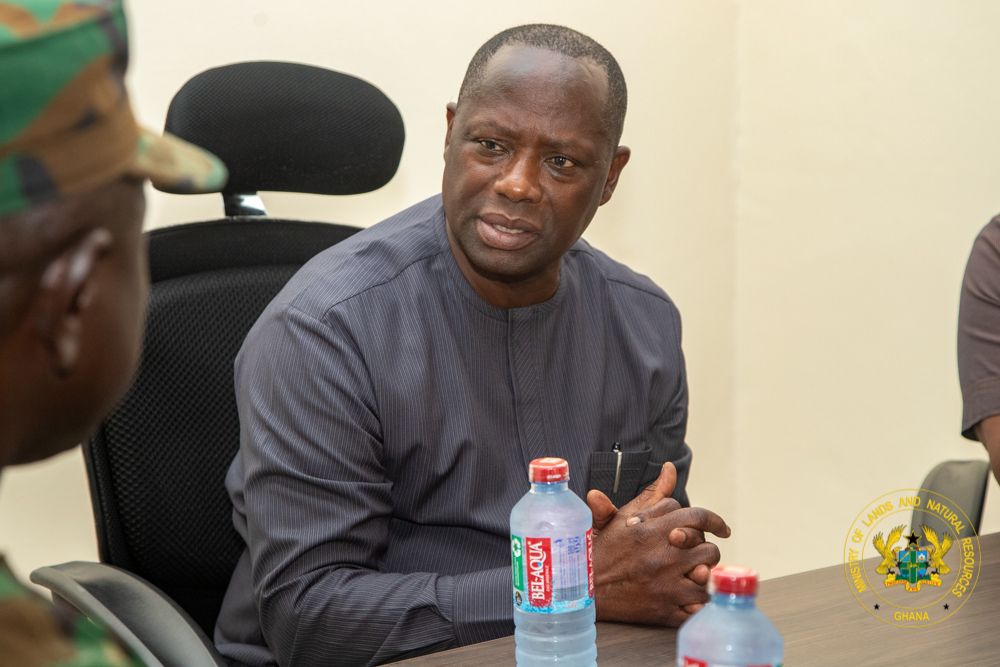
GHANA POISED TO LEAD IN GLOBAL LITHIUM MARKET. PUPLAMPU HIGHLIGHTS GHANA’S PUSH FOR LOCAL LITHIUM PROCESSING AND VALUE ADDITION AT IGF FORUM GHANA EYES INDUSTRIALIZATION, MIDSTREAM LITHIUM PROCESSING
GHANA POISED TO LEAD IN GLOBAL LITHIUM MARKET. PUPLAMPU HIGHLIGHTS GHANA’S PUSH FOR LOCAL LITHIUM PROCESSING AND VALUE ADDITION AT IGF FORUM GHANA EYES INDUSTRIALIZATION, MIDSTREAM LITHIUM PROCESSING
Wisdom Puplampu, Assistant Manager for Research & Statistics at the Minerals Commission, says Ghana is rapidly positioning itself as a strategic player in the global lithium market.
Speaking at the 21st Annual General Meeting (AGM) of the Intergovernmental Forum on Mining, Minerals, Metals and Sustainable Development (IGF) held at the Palais des Nations in Geneva, Puplampu highlighted the country’s emerging lithium sector as a new growth pole for the economy.
“Ghana’s lithium potential, primarily from hard-rock spodumene deposits in the Central and Western Regions, offers transformative opportunities for both national and regional development,” he said.
He noted that the Ewoyaa Lithium Project, developed by Atlantic Lithium Limited, remains the sector’s flagship, having advanced through feasibility studies, permitting stages, and state equity participation via the Minerals Income Investment Fund (MIIF).
Puplampu added that multiple exploration licenses granted to other companies indicate rising investor interest and broader geological potential.
Puplampu explained that Ghana is shifting away from the traditional dig-and-ship model toward downstream processing and value addition.
“Under the Green Minerals Policy, companies are required to conduct studies to evaluate domestic conversion of lithium and by-products such as feldspar for the ceramic industry.
This approach aims to create industrial supply chains, generate skilled employment, and support Ghana’s clean energy ambitions,” he said.
According to Puplampu, Ghana’s strategy balances investment attraction with national benefit. “The state’s equity participation through MIIF, strengthened local content provisions, and incentives for domestic processing ensure value retention.
Transparent governance, parliamentary oversight, and environmental safeguards provide investor confidence while promoting sustainable development,” he added.
Puplampu emphasized that as global demand for lithium surges, Ghana offers a stable, transparent, and strategically located alternative to dominant producers.
“By linking extraction with local processing and regional manufacturing under the African Continental Free Trade Area, Ghana is positioning itself not just as a supplier, but as a co-developer of industrial capacity, contributing to a more resilient global lithium supply chain,” he said.
The Ghanaian delegation included: Mr. Martin Kwaku Ayisi (Technical Advisor, Ministry of Lands and Natural Resources); Mrs. Helen Akpene Awo Ziwu (Solicitor General, Office of the Attorney General & Ministry of Justice); Dr. Ahmed Tijani (Head of Corporate Affairs and IT, Minerals Commission); Mrs. Leona Serwah Johnson-Abassah (Chief State Attorney); Mr. Wisdom B. Puplampu (Assistant Manager, Research and Statistics, Minerals Commission); and Mr. Gabriel Gaanu (Manager, Mining Sector, Domestic Tax Division, Ghana Revenue Authority).
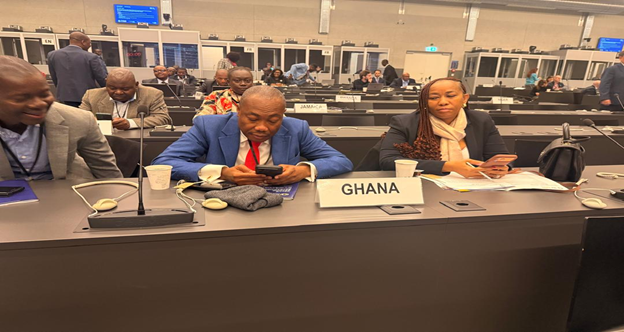
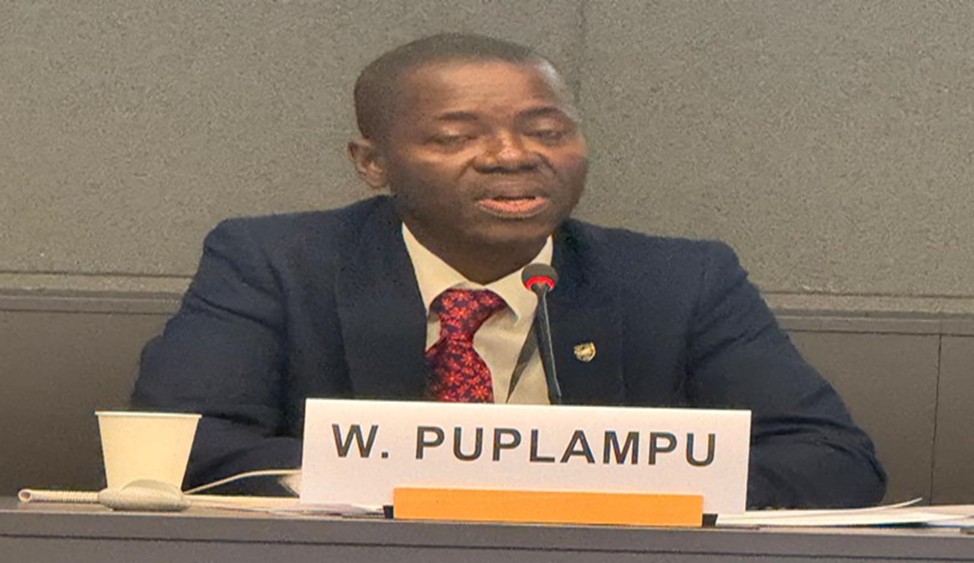
Victoria Awuni: Ghana’s Mining Industry Driving Inclusive Growth and Development
Victoria Awuni: Ghana’s Mining Industry Driving Inclusive Growth and Development
Victoria Awuni, Deputy Chief Executive Officer for Policy Planning, Mineral Titles & Local Content at Ghana’s Minerals Commission, has highlighted Ghana’s approach to inclusive mining at the 21st Annual General Meeting (AGM) of the Intergovernmental Forum on Mining, Minerals, Metals and Sustainable Development (IGF), held at the Palais des Nations in Geneva.
Speaking at the plenary session on “Value for All: Inclusive Strategies Across Mineral Value Chains,” Awuni showcased how Ghana’s mining sector leverages local content and procurement frameworks to promote inclusive employment, gender equality, and Small and Medium Enterprise (SME) participation.
Awuni noted that Ghana’s local content regime balances local and foreign expertise. Mining companies are required to reserve specific job opportunities for Ghanaian citizens while integrating foreign expertise to support technology transfer and productivity. Mine managers are expected to be Ghanaian nationals after five years of operation, and laws mandate employment opportunities for vulnerable groups, including persons with disabilities.
Gender Equality
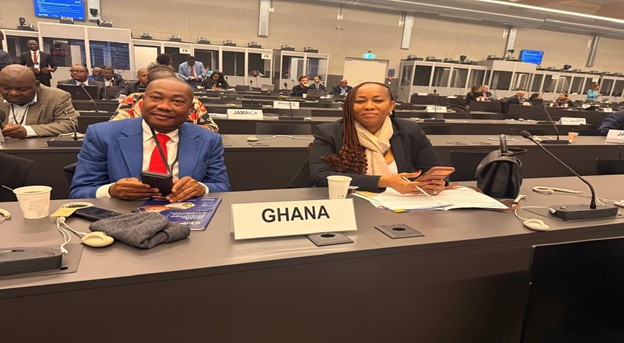
Awuni explained that Ghanaian legislation requires mining firms to demonstrate gender parity through localization plans submitted to the Minerals Commission. While a 2022 IGF study showed women were mostly in clerical roles, Ghana is now reinforcing women’s participation in technical and managerial positions through legal and policy measures
Mining generates opportunities for supporting businesses. Ghana has earmarked 51 goods and services for local businesses with significant local shareholding, generating USD 2.6 billion in 2024 and creating employment beyond the mines themselves.
Awuni highlighted community development initiatives, including ICT labs in schools, technology training, and road construction projects such as Newmont’s 10.2 km Afrisipa-Tekyire bypass and Goldfields’ 33 km Tarkwa-Damang road reconstruction. These projects enhance connectivity, digital skills, and energy access in host mining communities.
Awuni concluded that Ghana’s experience demonstrates how coherent local content policies ensure mining contributes not only to national revenue but also to broad-based social and economic benefits.
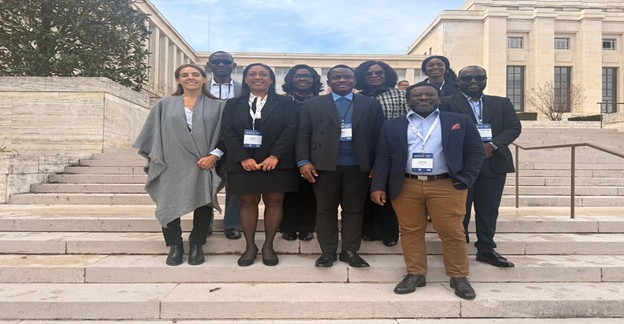
The Ghanaian delegation included: Mr. Martin Kwaku Ayisi (Technical Advisor, Ministry of Lands and Natural Resources); Mrs. Helen Akpene Awo Ziwu (Solicitor General, Office of the Attorney General & Ministry of Justice); Dr. Ahmed Tijani (Head of Corporate Affairs and IT, Minerals Commission); Mrs. Leona Serwah Johnson-Abassah (Chief State Attorney); Mr. Wisdom B. Puplampu (Assistant Manager, Research and Statistics, Minerals Commission); and Mr. Gabriel Gaanu (Manager, Mining Sector, Domestic Tax Division, Ghana Revenue Authority).
<<END OF STORY>>
GHANA HIGHLIGHTS MINING SECTOR REFORMS AT IGF AGM 2025 IN GENEVA
GHANA HIGHLIGHTS MINING SECTOR REFORMS AT IGF AGM 2025 IN GENEVA
Ghana showcased its mining sector reforms and policy initiatives at the 21st Annual General Meeting (AGM) of the Intergovernmental Forum on Mining, Minerals, Metals and Sustainable Development (AGM), held from November 3–6, 2025, at the Palais des Nations in Geneva, Switzerland.
Organized under the theme, “Value Beyond Extraction: Rethinking Mining for a Resilient Future”, the four-day conference brought together member countries, policymakers, civil society organizations, and industry leaders to share knowledge, discuss emerging trends, and review technical sessions, including the induction of new Executive Committee members.
At the plenary session on Wednesday, November 5, Ms. Victoria Awuni, Deputy Chief Executive Officer for Policy Planning, Mineral Titles & Local Content at the Minerals Commission, spoke on “Value for All: Inclusive Strategies Across Mineral Value Chains.”
She emphasized that Ghana’s local content policies are designed to promote inclusivity while maximizing benefits for Small and Medium Enterprises (SMEs).
Awuni highlighted how local content and procurement frameworks drive inclusive employment, gender equality, and SME participation across the mining value chain.
She also cited the positive impact of corporate social responsibility (CSR) initiatives by mining companies, including ICT training, health, water, recreational facilities, and road construction.
Notable projects include the construction of ICT laboratories and the supply of computers for schools, as well as Newmont Ghana’s 10.2 km Afrisipa-Tekyire Bypass on the Sunyani-Kumasi Road and Goldfields Ghana’s 33 km Tarkwa-Damang road reconstruction.
During the Commodity Session on Lithium, Mr. Wisdom B. Puplampu, Assistant Manager for Research and Statistics at the Minerals Commission, highlighted Ghana’s strategic potential in critical minerals.
He noted that the Ewoyaa Lithium Project presents opportunities for value retention and local beneficiation. Although the mining lease agreement with Atlantic Lithium’s subsidiary, Barari DV, is yet to be ratified by Parliament, the terms include a 10% royalty (up from 5%), 13% state participation (up from 10%), and 13% shareholding by the Minerals Income Investment Fund (MIIF).
Mr. Puplampu also highlighted that Atlantic Lithium is required to build a lithium processing facility, ensuring value addition and generating employment opportunities for Ghanaian youth. He emphasized that the new policy framework is designed to strengthen Ghana’s management of both traditional minerals (gold, bauxite, manganese, diamonds) and transition minerals like lithium.
The Ghanaian delegation included: Mr. Martin Kwaku Ayisi (Technical Advisor, Ministry of Lands and Natural Resources); Mrs. Helen Akpene Awo Ziwu (Solicitor General, Office of the Attorney General & Ministry of Justice); Dr. Ahmed Tijani (Head of Corporate Affairs and IT, Minerals Commission); Mrs. Leona Serwah Johnson-Abassah (Chief State Attorney); Mr. Wisdom B. Puplampu (Assistant Manager, Research and Statistics, Minerals Commission); and Mr. Gabriel Gaanu (Manager, Mining Sector, Domestic Tax Division, Ghana Revenue Authority).
<<END OF STORY>>
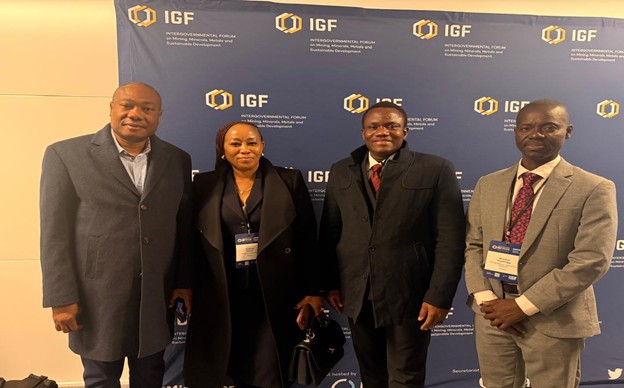
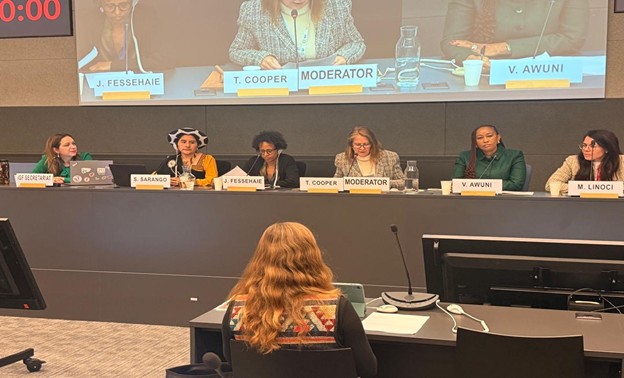

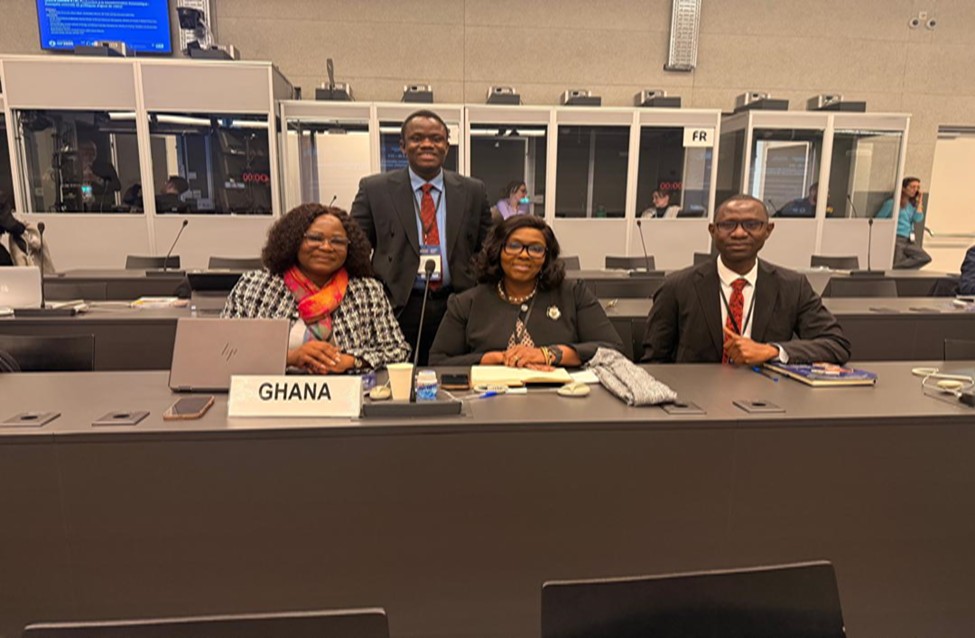
Edmund Prah Harrison’s Transformational Career at the Minerals Commission
From the Gate to the Bar: Edmund Prah Harrison’s Transformational Career at the Minerals Commission
Growing up in a single-parent household, Edmund Prah Harrison Esq. faced financial hardship that nearly derailed his dream of becoming a top professional. Yet through perseverance, faith, and an unwavering commitment to personal growth, he transformed adversity into opportunity – charting a remarkable path within the Minerals Commission.
Edmund began his career at the Commission as a security personnel after completing Senior High School. Determined to advance, he acquired driving skills and pursued further education while working full-time. With discipline and resilience, he steadily progressed from driver to Assistant Administrative Officer, where he developed strong administrative and organizational capabilities.
It was during this phase that Edmund’s aspiration to pursue law took root. With unwavering focus, he completed his LLB programme and gained admission to the Ghana School of Law. Today, as a qualified lawyer, he brings a unique blend of practical experience, administrative insight, and legal acumen to support the Commission’s mandate.
Reflecting on his journey, Edmund emphasized that this transformation would not have been possible without the unwavering support and encouragement of the Board, Management, and Staff of the Commission. “Their belief in my potential, investment in capacity building, and commitment to nurturing talent created the enabling environment for my growth,” he noted. He also expressed deep gratitude for the opportunities, mentorship, and trust extended to him throughout his career.
Edmund’s story is a testament to the power of determination, continuous learning, and institutional support. He remains committed to serving the Commission with integrity, excellence, and a grounded perspective – ready to tackle complex legal challenges and contribute meaningfully to the Commission’s growth and development.
To God be the glory.
END.


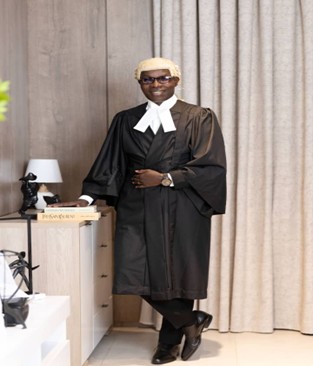
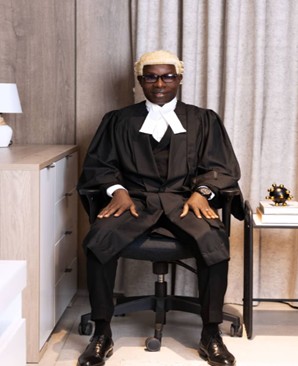
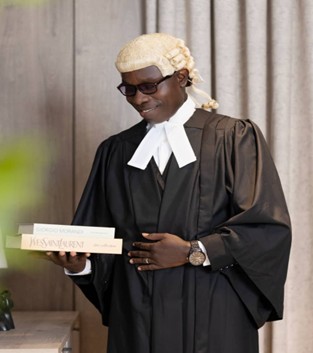
Minerals Commission Pushes Bold Reforms to Ghana’s Mining Laws
Minerals Commission Pushes Bold Reforms to Ghana’s Mining Laws
The outing Chief Executive Officer of the Minerals Commission, Mr. Martin Ayisi, on Monday, September 1, 2025, engaged members of the Ghana Journalists Association (GJA) from the various regions in a spirited conversation about the government’s proposed amendment of the Minerals and Mining Act, 2006 (Act 703).
The discussion, which comes at a pivotal moment for Ghana’s extractive industry, outlined far-reaching reforms intended to modernize mining regulation, address long-standing inefficiencies, and ensure that communities derive greater benefits from the country’s mineral wealth.
In his keynote remarks, Mr. Ayisi was candid about the motivation behind the reforms. “The Minerals and Mining Act and its regulations have guided our industry for over thirteen years. But along the way, we have faced real implementation challenges. Change is not always about failure—it is also about positioning ourselves to achieve better outcomes,” he said.
He noted that advocacy from civil society organisations, think tanks, and the media had amplified concerns about the poor state of mining communities and the limited national gains despite Ghana’s mineral abundance. For him, the moment had come to “pivot strategically and overhaul the framework”.
The Commission’s boss stressed that Ghana’s mining policies cannot be divorced from wider regional and global realities. He urged caution against oversimplified comparisons with other jurisdictions. “When critics cite Burkina Faso or elsewhere, we must ask: what are their standards? In Ghana, for example, we insist on certified mine managers—a basic requirement that may not apply in other countries. We must avoid a race to the bottom,” he explained.
He also warned that insecurity in neighboring states often spills across borders, reinforcing the need for Ghana’s policies to reflect both domestic priorities and regional dynamics.
Mr. Ayisi took the journalists through key reforms at the heart of the amendment bill, including:
1. Abolition of Development Agreements (DAs) – These special agreements, which shielded companies from certain taxes and levies, will be scrapped. According to him, they prevented the state from benefiting during record commodity booms such as the current $3,000/oz gold price era. “The asymmetry is unacceptable” he said, recalling how stabilisation clauses blocked Ghana’s attempts to capture windfall profits.
2. Shorter Mining Leases – Lease durations will be cut from 30 years to a maximum of 15 years, reflecting the reality that most mines exhaust in under a decade. “30 years leases are excessive and out of step with economic and geological data” he argued.
3. Overhaul of Stabilisation Clauses – Broad investor protections will be abolished, though limited stability clauses may still apply to large-scale, capital-intensive projects such as refineries or major infrastructure.
4. Capping Prospecting Licences – Ghana will end indefinite licence renewals that encourage land hoarding. New limits, likely between 7–9 years, will align the country with global best practices.
5. Mandatory Community Development Agreements (CDAs) – For the first time, companies will be legally required to commit a percentage of revenue—not profit—to host communities. Mr. Ayisi illustrated this with a striking example: “If Newmont Ahafo had committed just 1% of last year’s $1.8 billion revenue, $18 million would have gone directly into local development.”
6. Parliamentary Oversight – He also reaffirmed Ghana’s unique stance of subjecting mining lease cancellations to parliamentary ratification, a safeguard that underscores transparency.
Beyond technical reforms, Mr. Ayisi stressed that the new Act will deliberately mainstream gender considerations and open doors for persons with disabilities to participate meaningfully in mining. “This industry must not only be profitable; it must be inclusive and socially just” he declared.
Adding further depth, Mr. Benjamin Aryee, former CEO of the Commission and Advisor to the Minister, presented a review of the 2014 Mining Policy. His remarks tied the proposed reforms to larger global shifts.
He underscored the importance of Ghana’s Green and Critical Minerals Policy, which aligns the country with surging global demand for transition minerals like lithium. He also emphasized the growing influence of ESG (Environment, Social, and Governance) standards, the impacts of climate change, and the government’s moves to create a new medium-scale mining category alongside cooperative mining initiatives.
“Global trends demand nothing short of a paradigm shift” Mr. Aryee said. He further added “Climate change, the race for critical minerals, and lessons from a decade of implementation compel us to rethink how Ghana manages its mineral endowment”.
Together, the presentations painted a picture of a bold, forward-looking mining sector one that seeks not just foreign investment but also fairness, accountability, and sustainability.
For Ghana, a country long dependent on gold, bauxite, manganese, and more recently, green minerals, the proposed amendments could mark the most significant regulatory shake-up in nearly two decades.
And if the words of Mr. Ayisi and Mr. Aryee are anything to go by, the reforms are not just about fixing old problems. They are about preparing Ghana’s mining sector for the next era of opportunity, one rooted in resilience, inclusivity, and sustainable national growth.
The President of the Ghana Journalists Association (GJA), Mr. Albert Kwabena Dwumfuor on his part, stressed that responsible regulation is the only way to safeguard communities and protect the nation’s resources.
Speaking at the stakeholder engagement with the Minerals Commission on the proposed amendment of the Minerals and Mining Act, the GJA President commended the Commission’s outgoing Chief Executive Officer, Mr. Martin Ayisi, for his commitment to transforming the industry.
The GJA President recalled that last year he had submitted a report to the Presidency highlighting the urgent need for reforms in the sector. He noted that illegal mining, popularly known as galamsey, has become nothing short of a national emergency, wreaking havoc on water bodies, destroying farmlands, and threatening livelihoods.
The Association, he said, sees its role not just as observers but as partners in ensuring accountability. By informing and educating the public, journalists can help citizens understand the implications of mining reforms and push for their full enforcement.
While acknowledging that reforms may have come later than expected, the GJA President stressed that “it is never too late to make the right changes.” He called for consistency, transparency, and active involvement of all stakeholders, including civil society and local communities, in shaping Ghana’s mining future.
The GJA, he assured, will continue to use its platforms to keep the national conversation alive, track progress, and ensure that Ghana’s mineral wealth benefits the wider population rather than a privileged few.
END.
